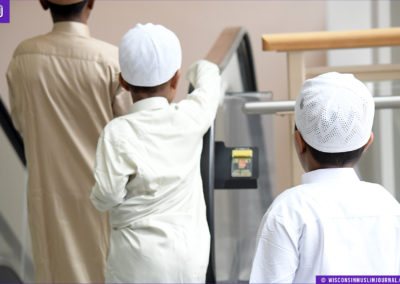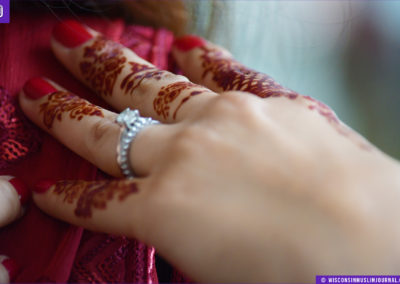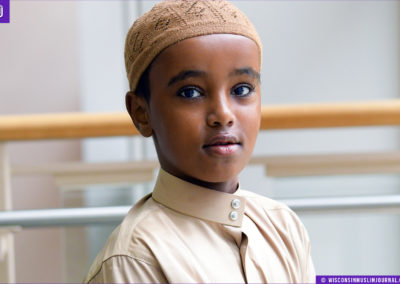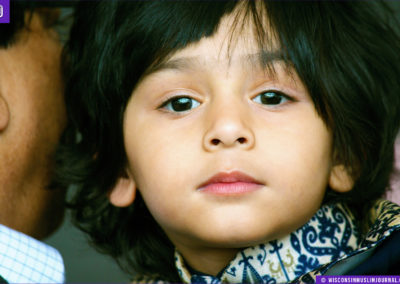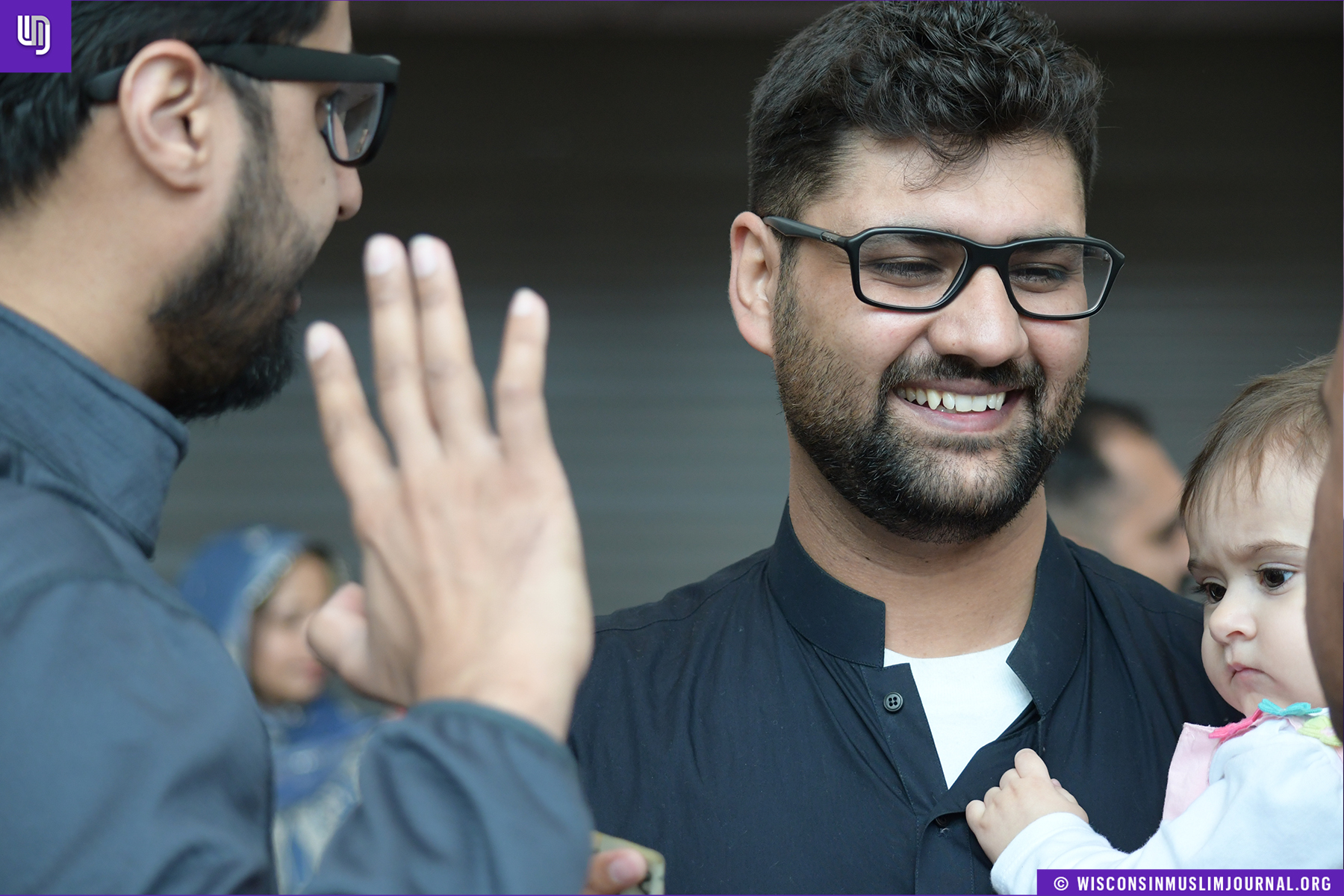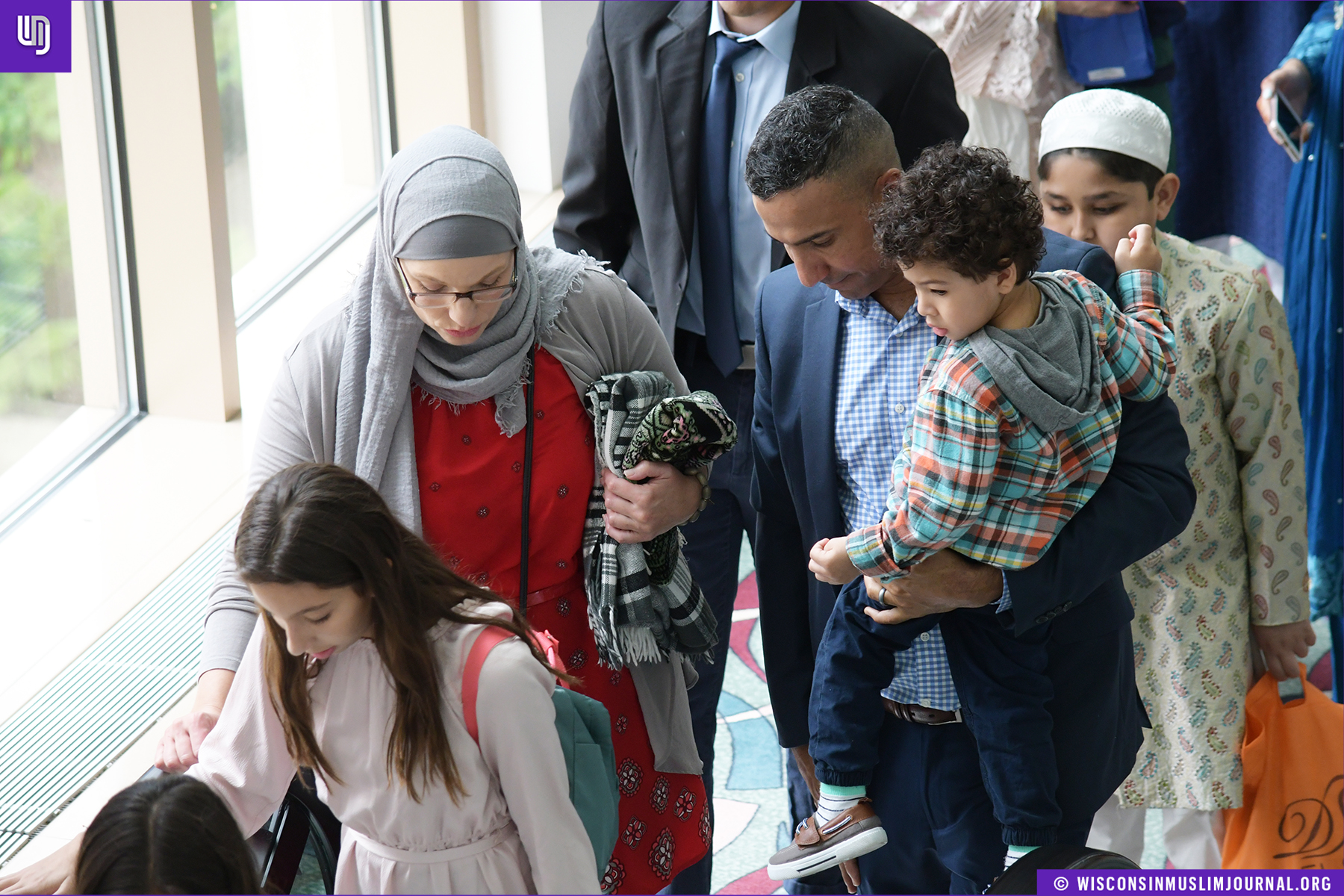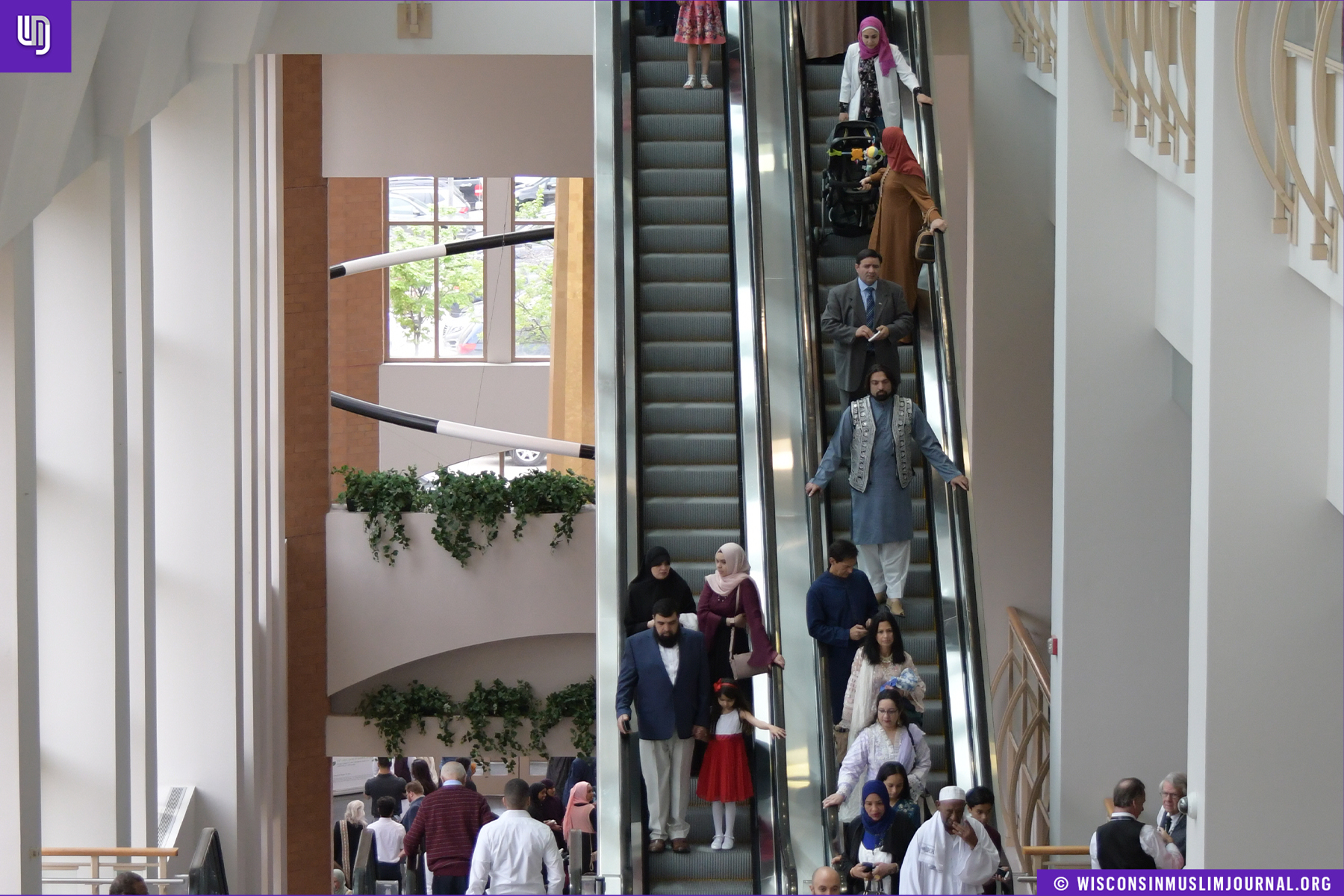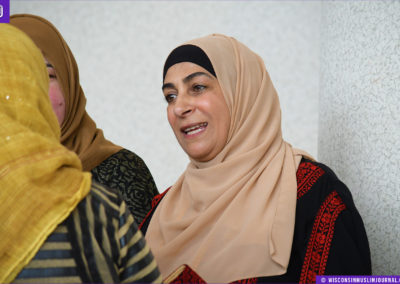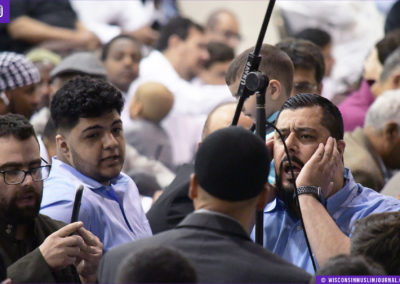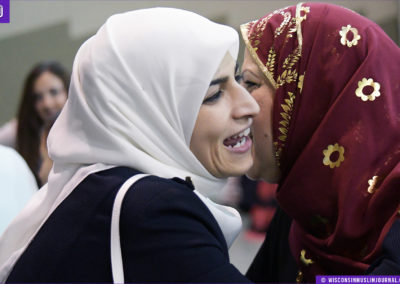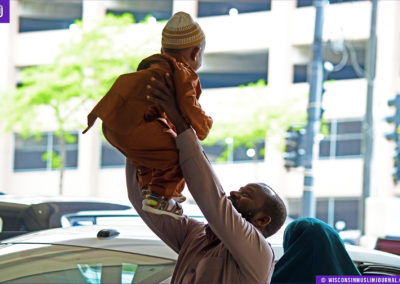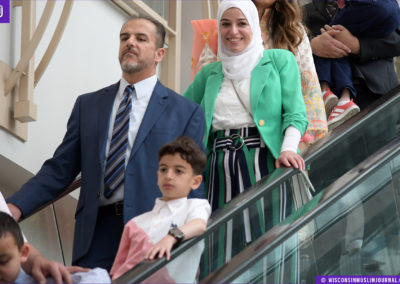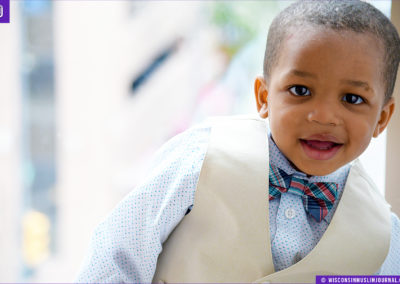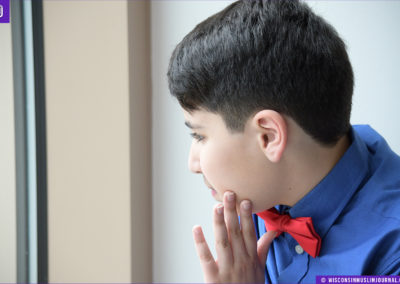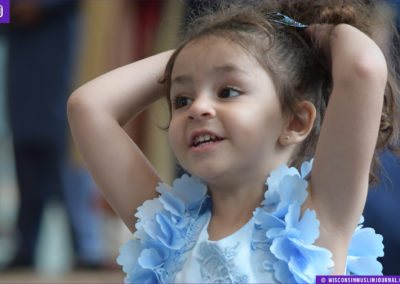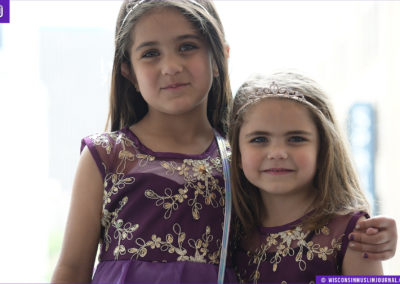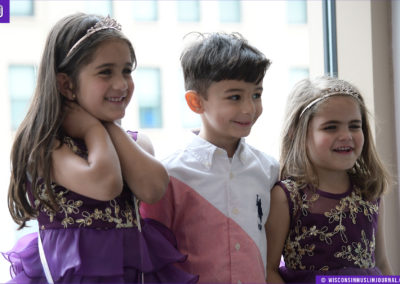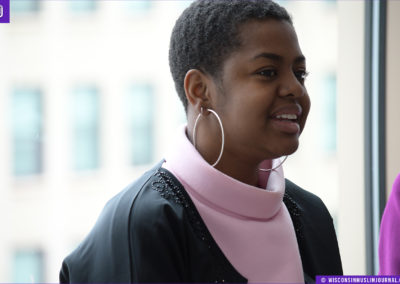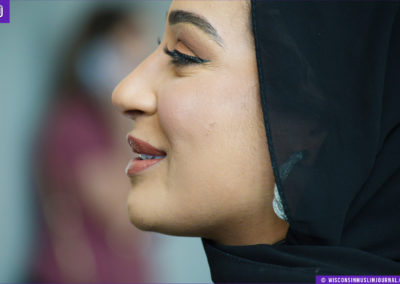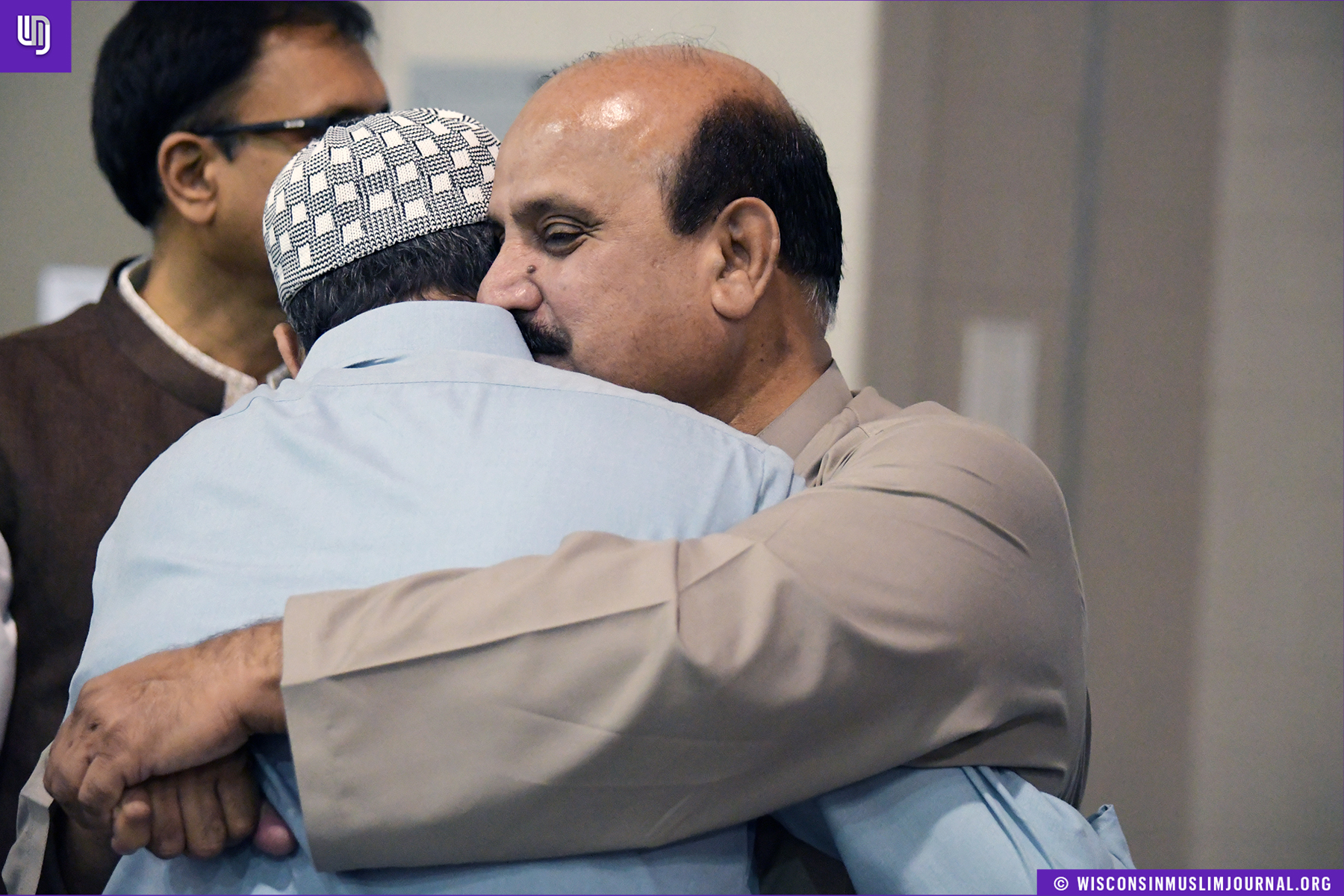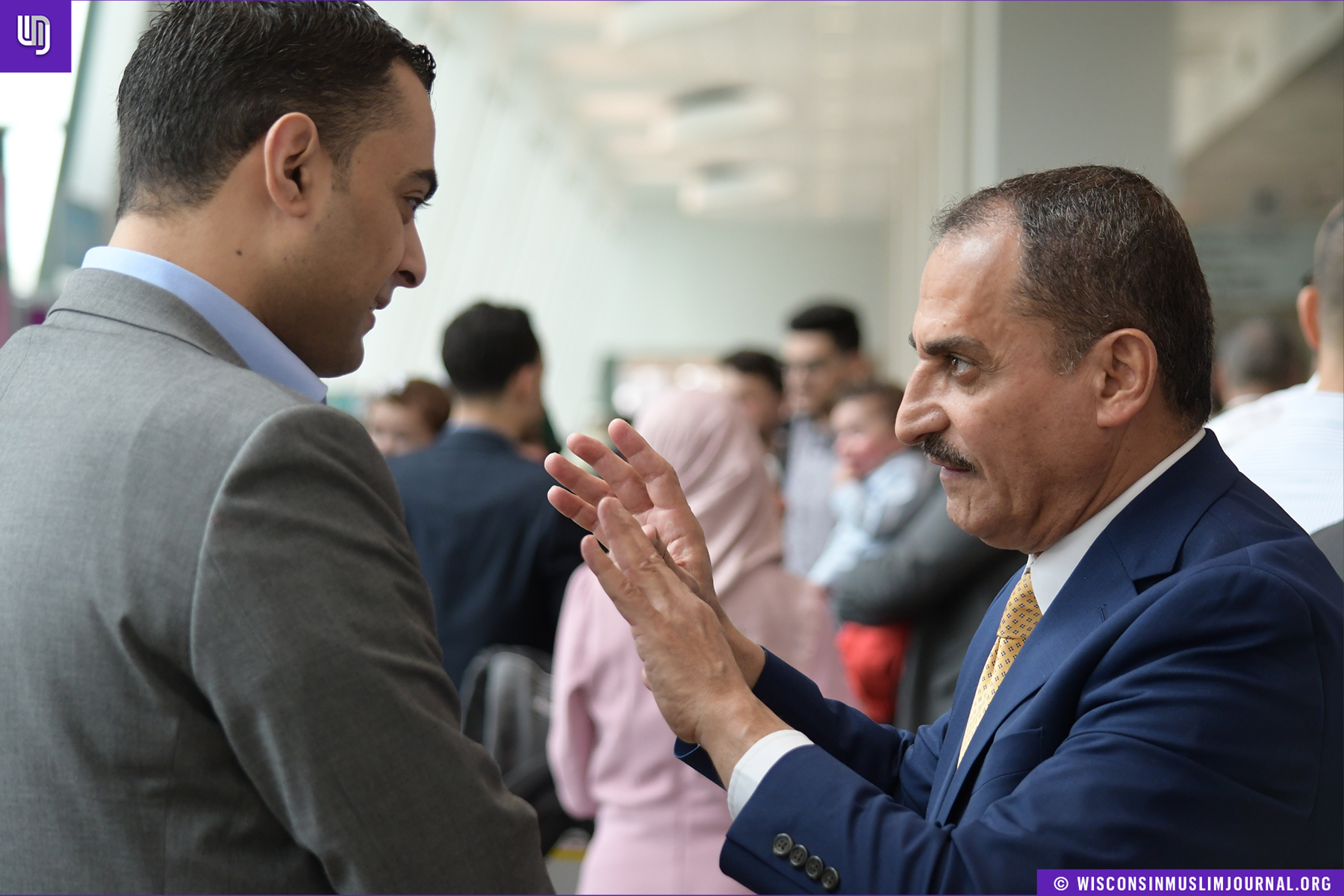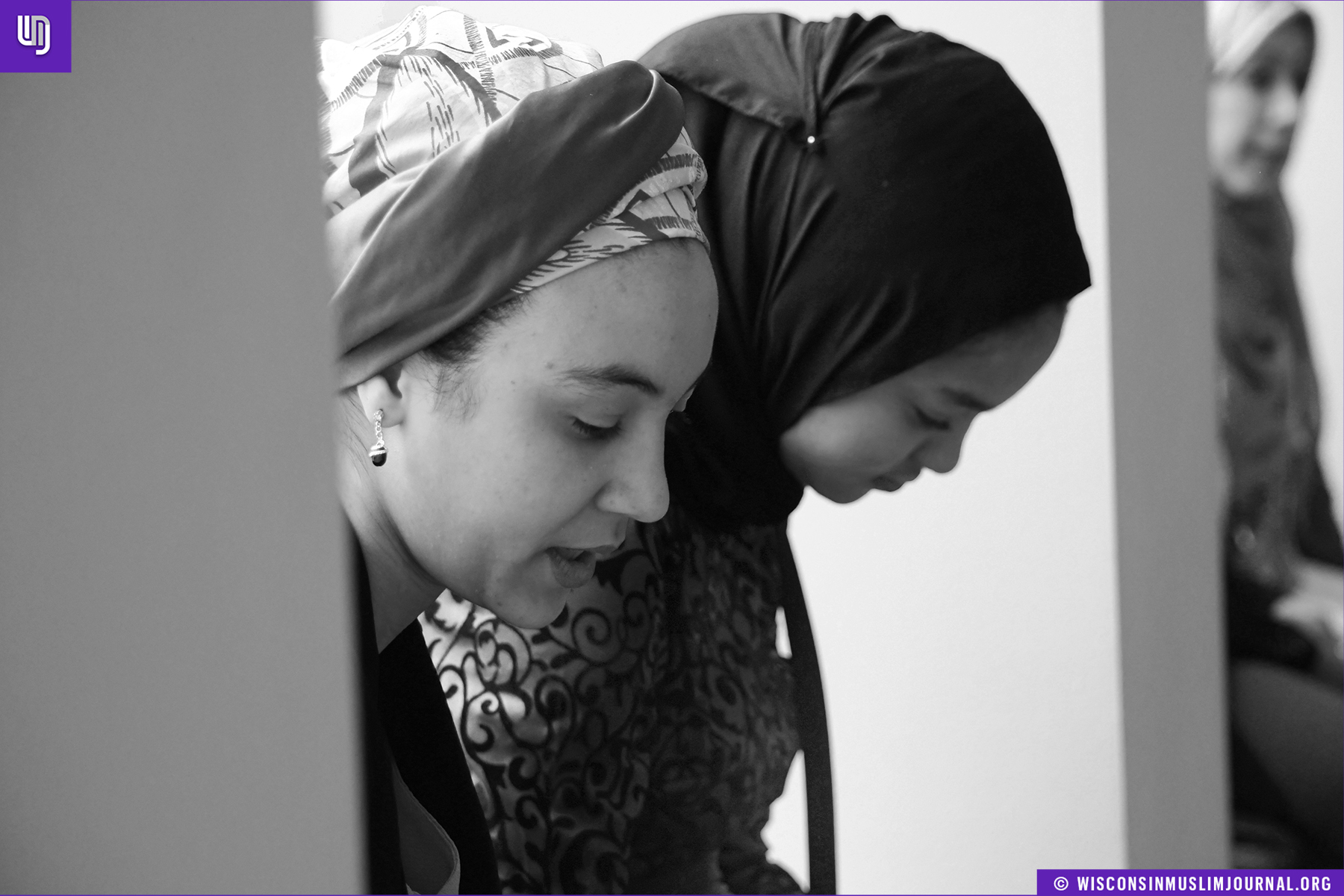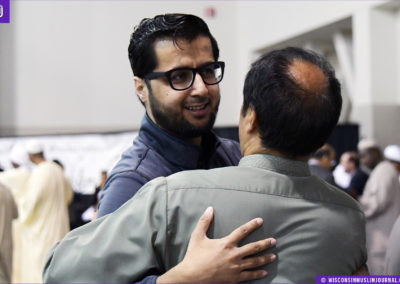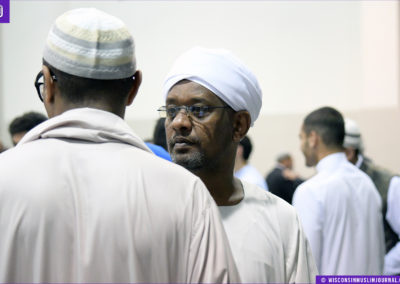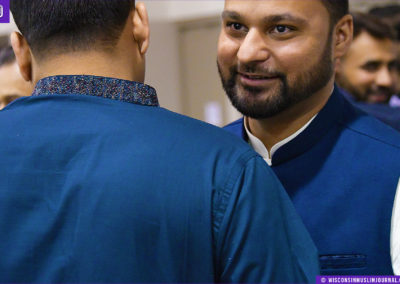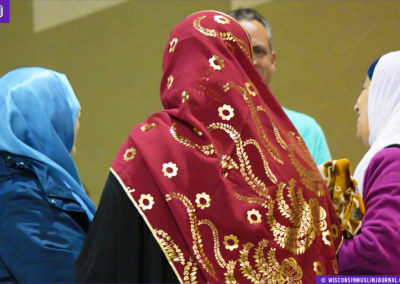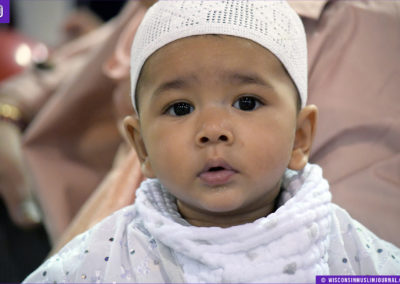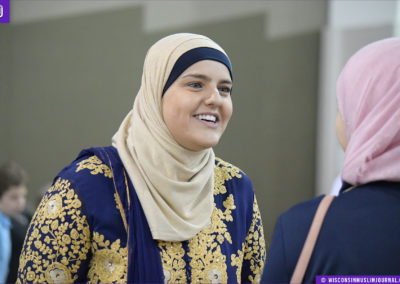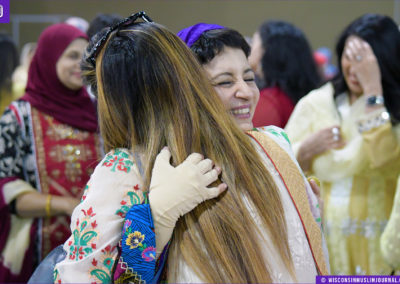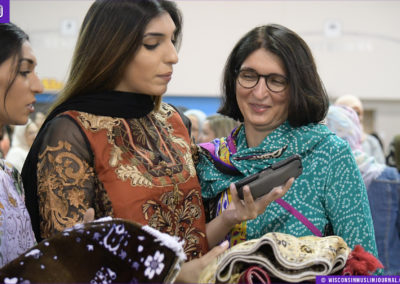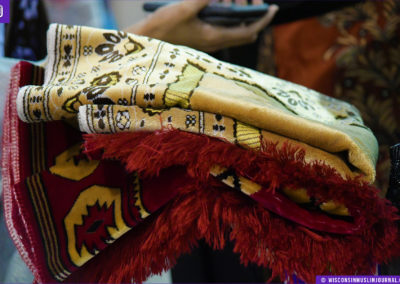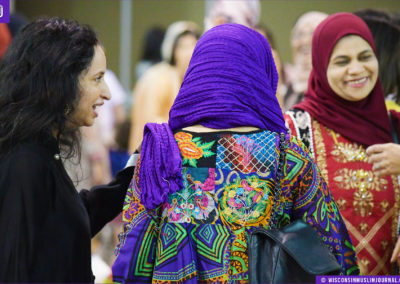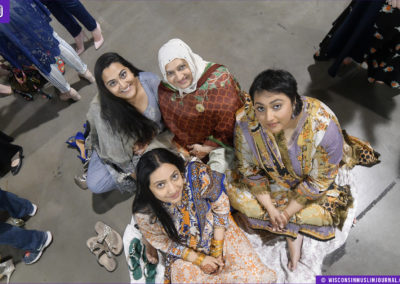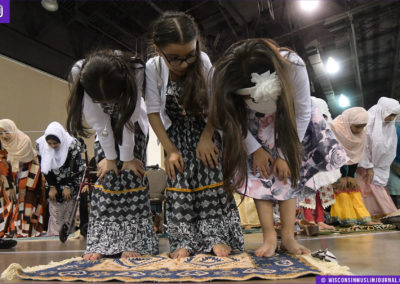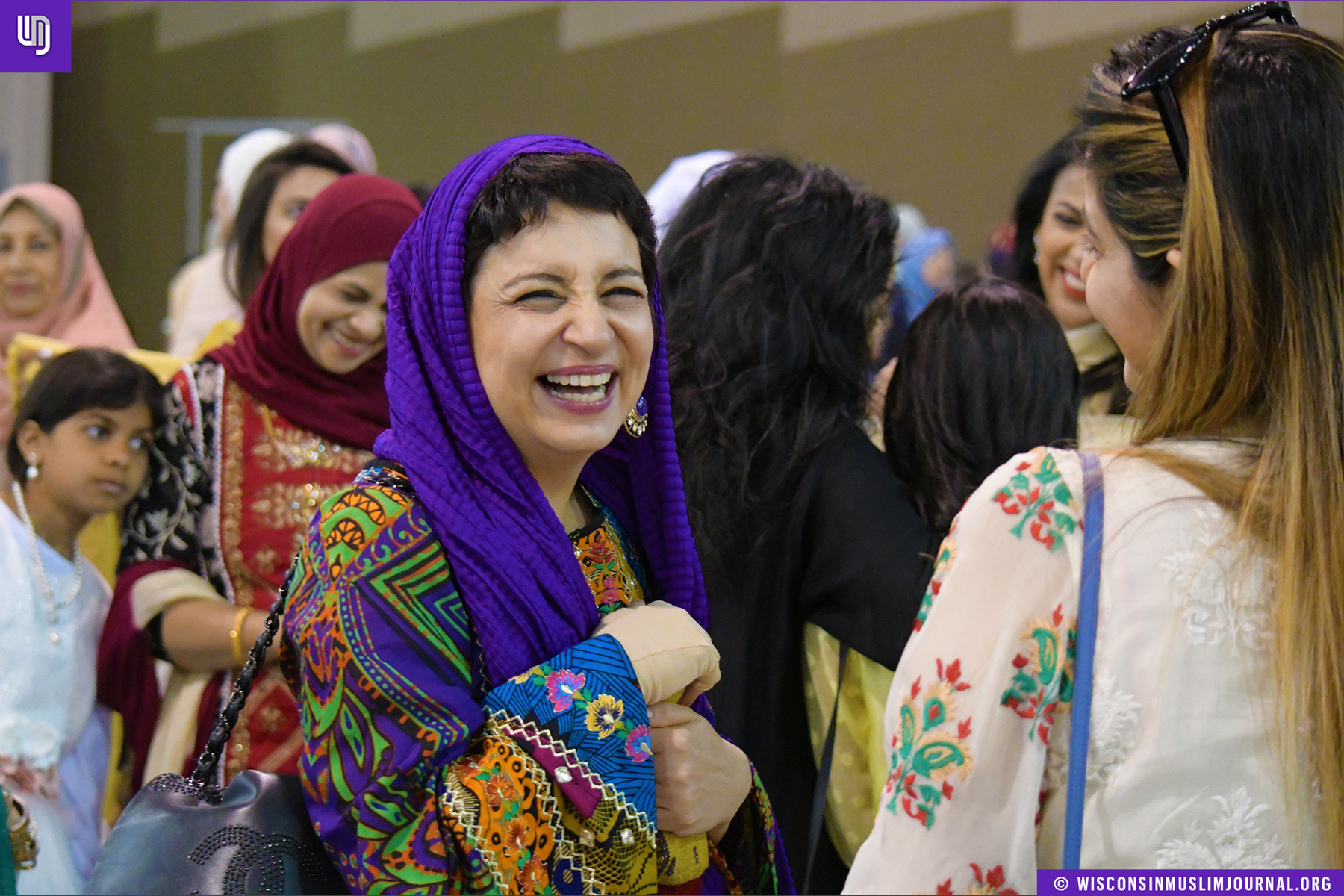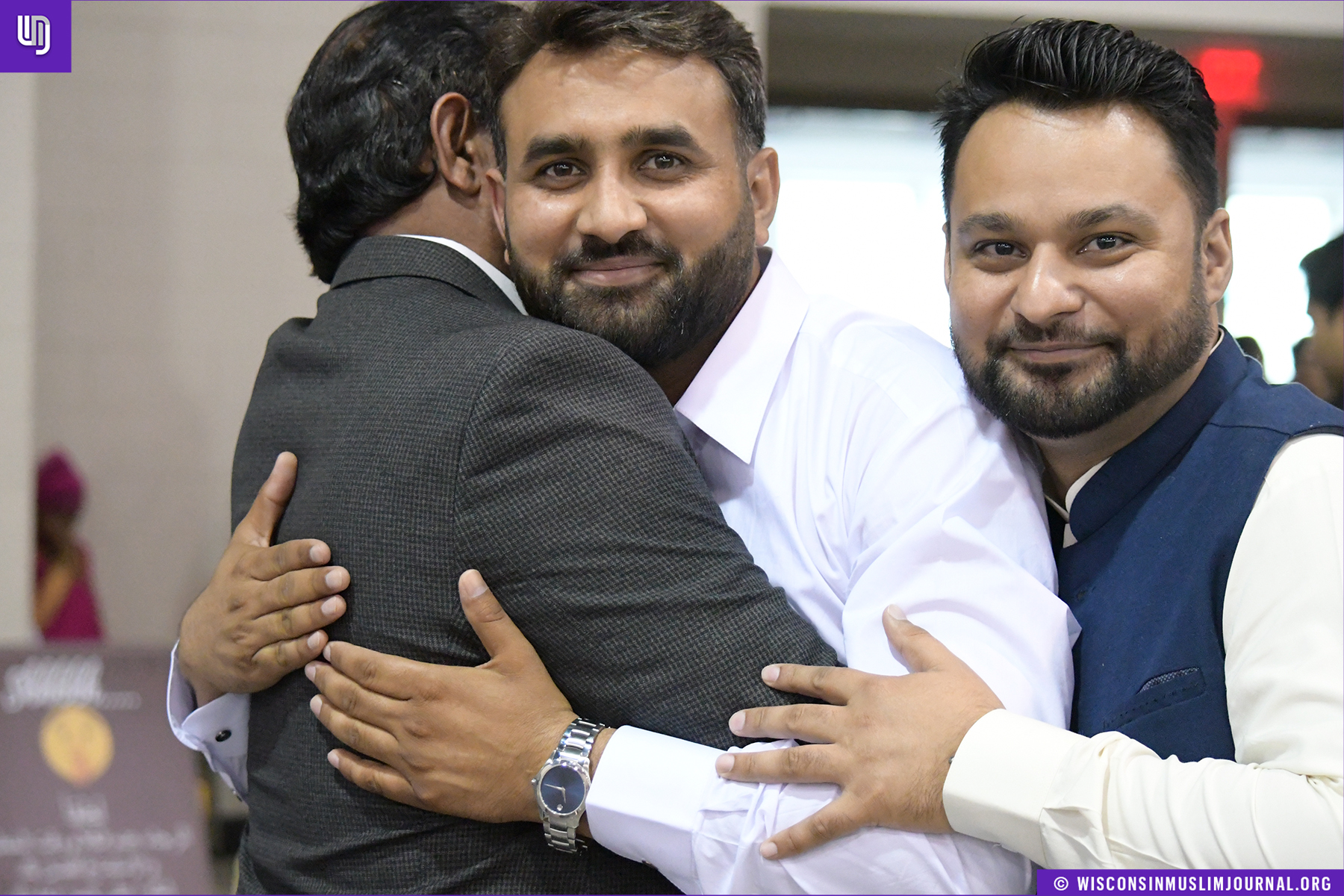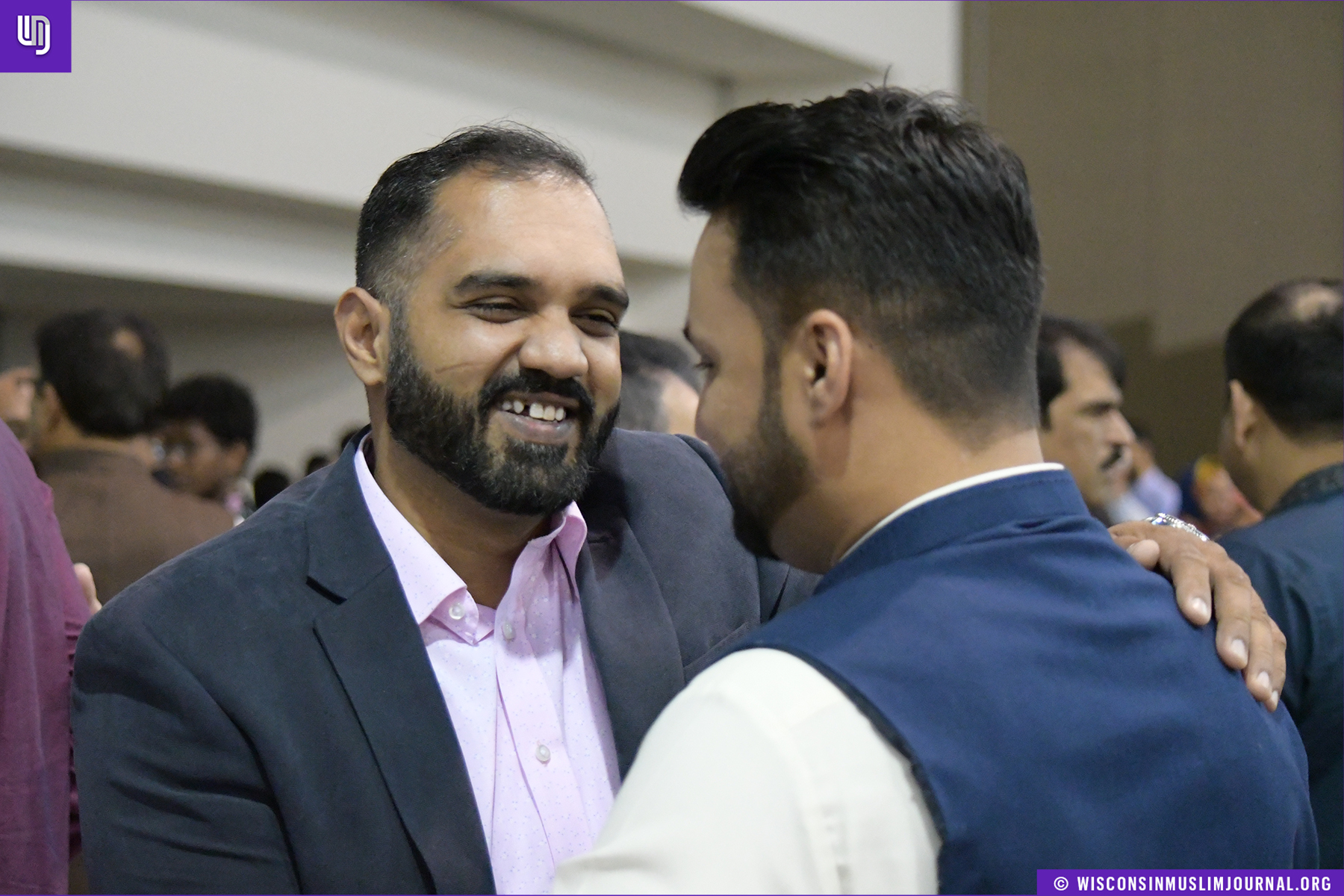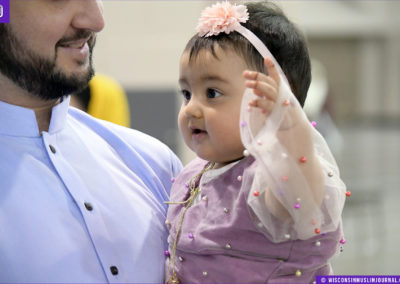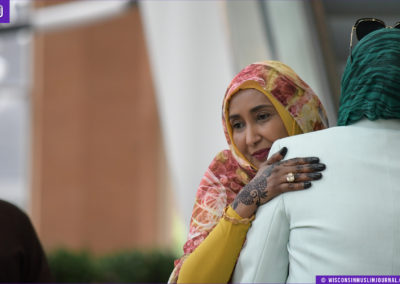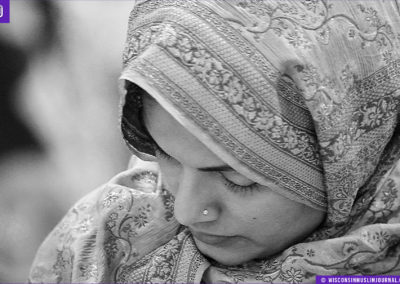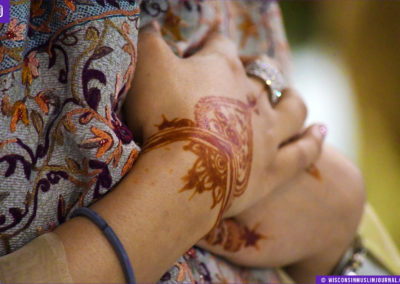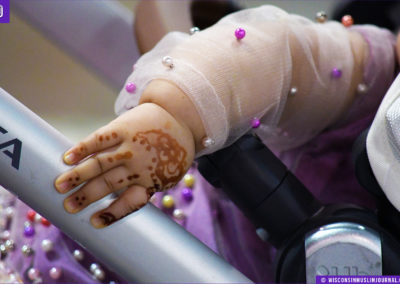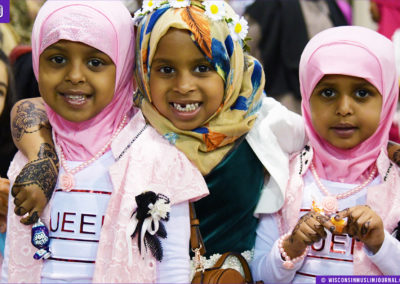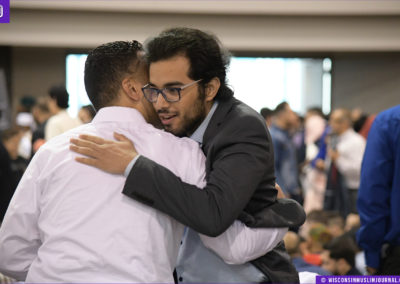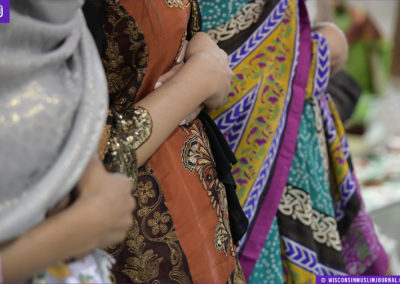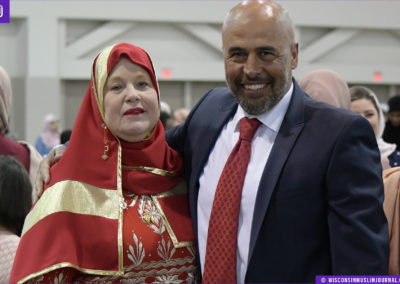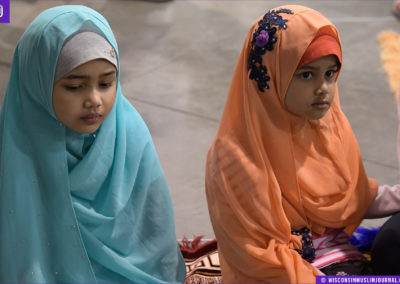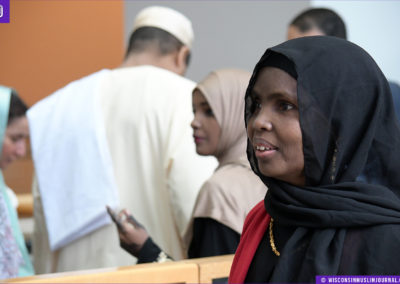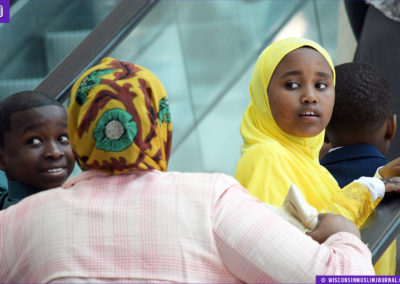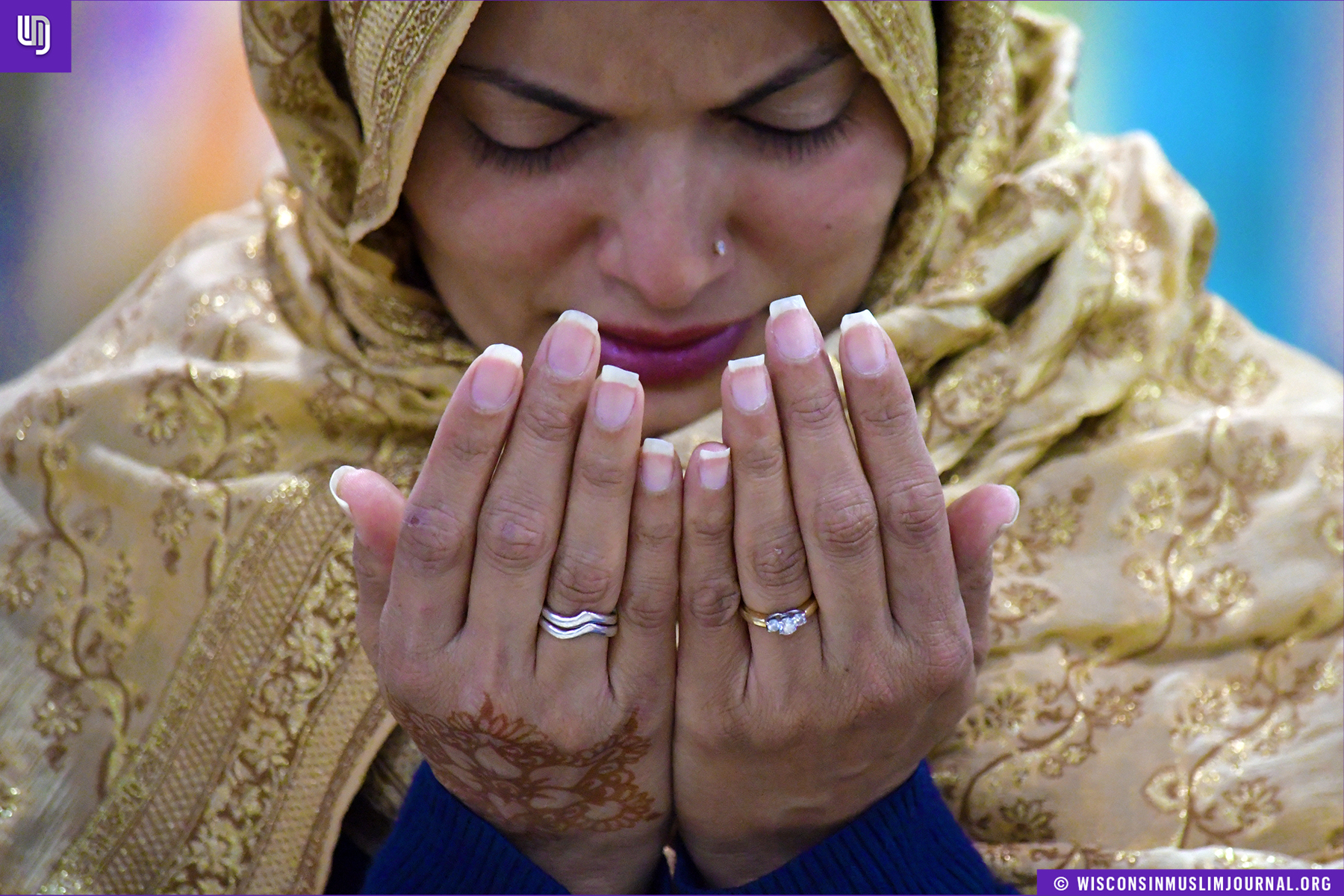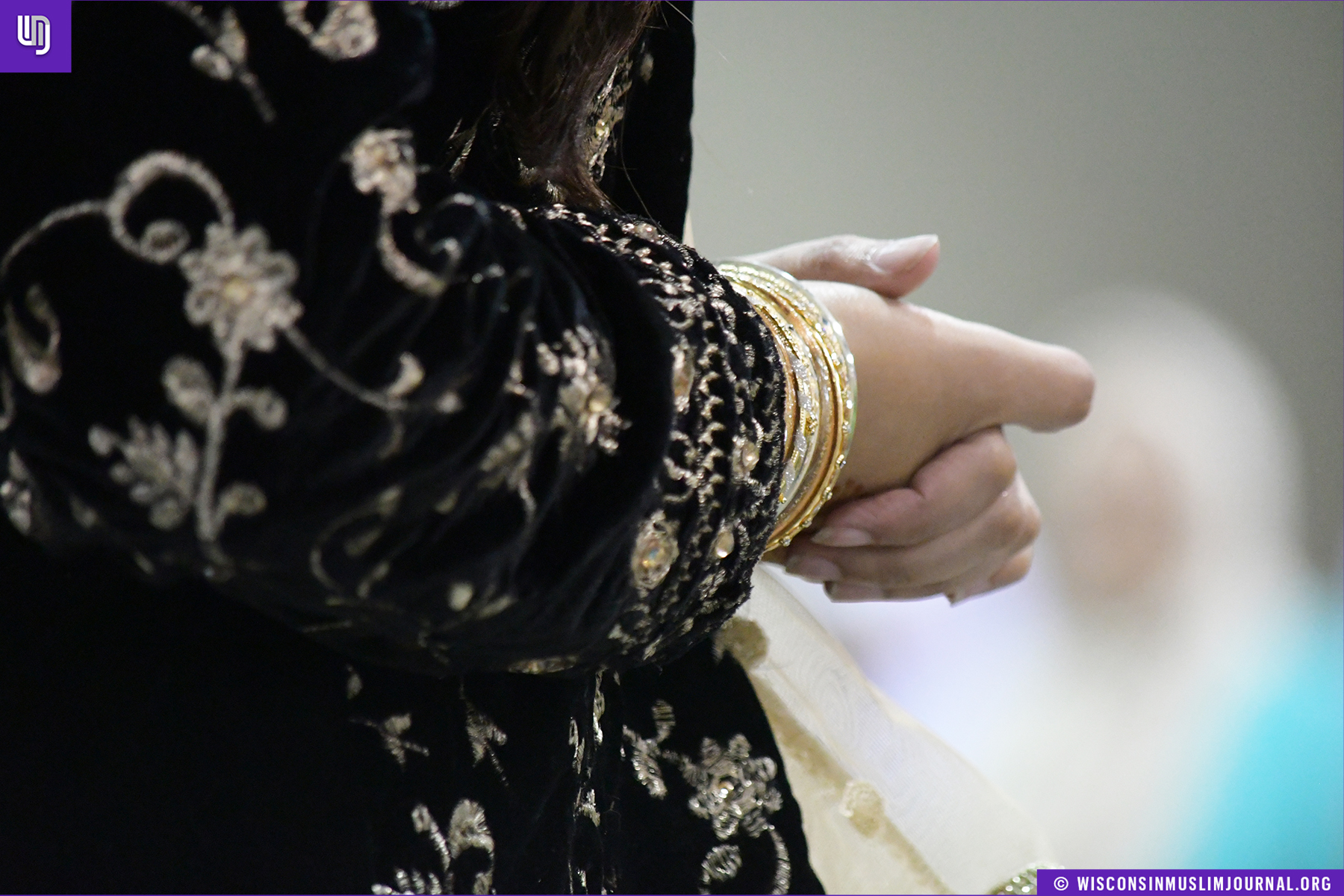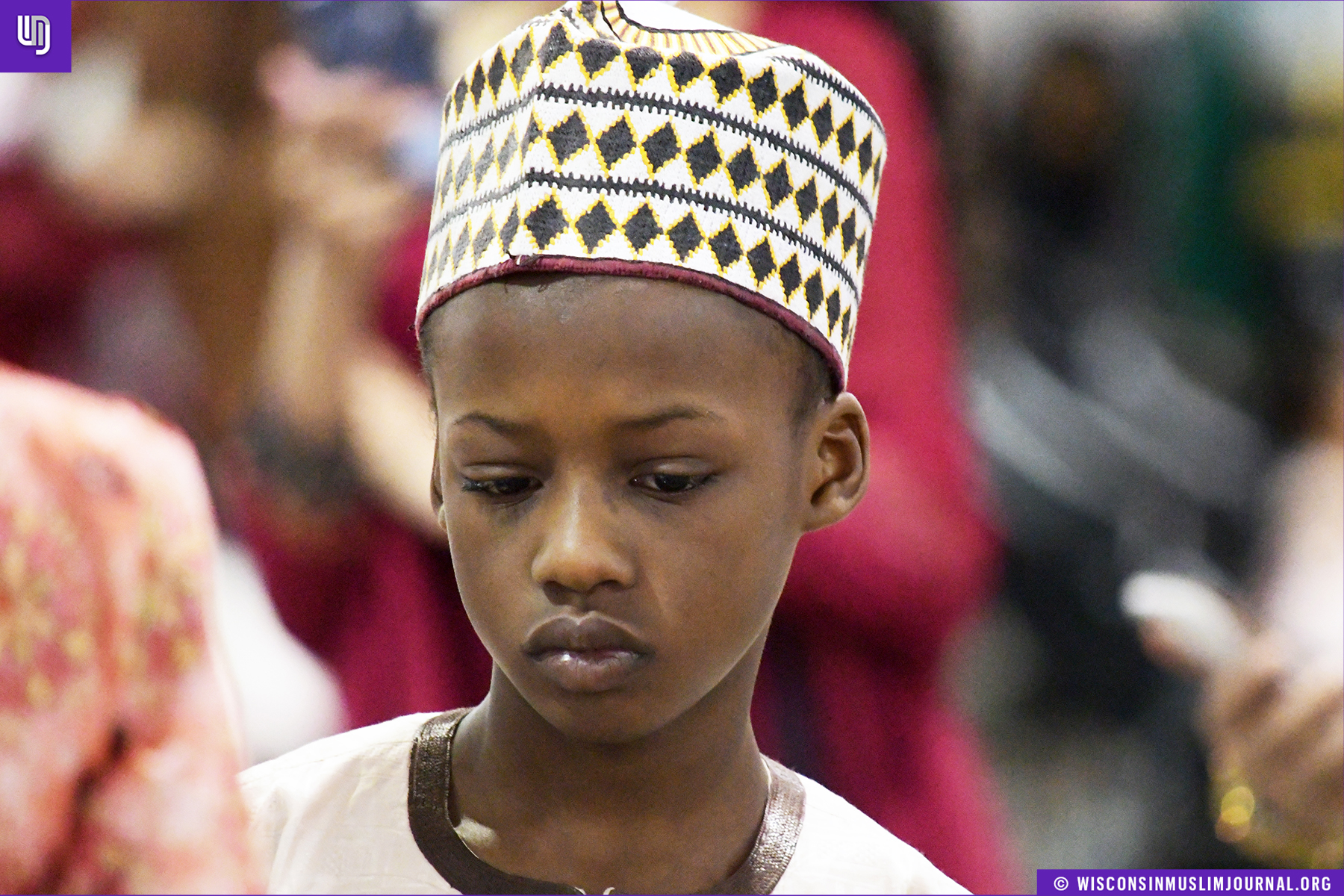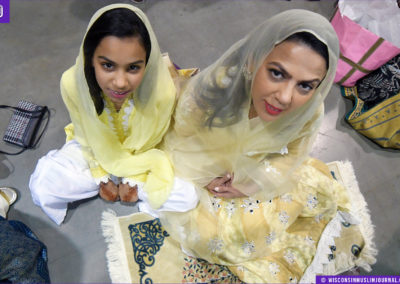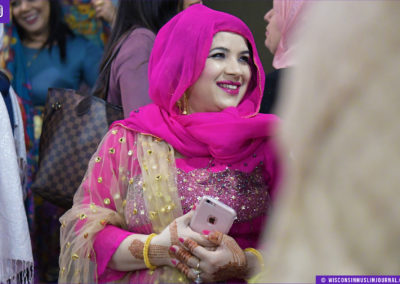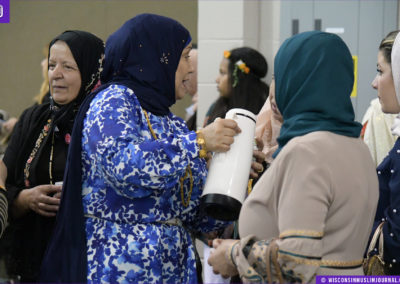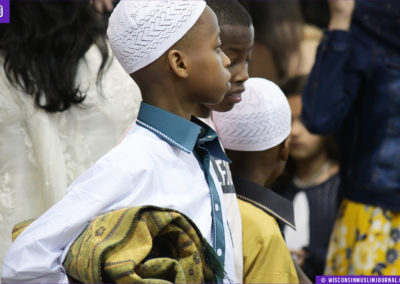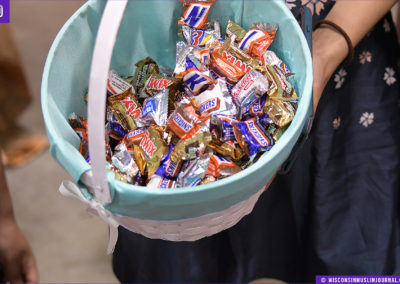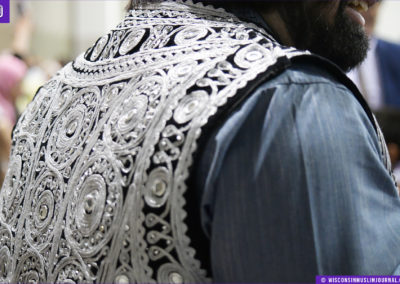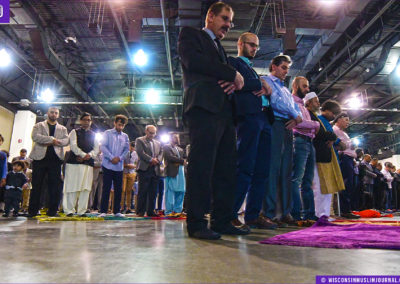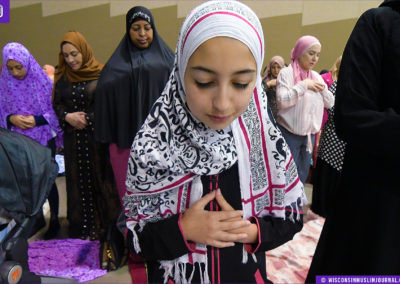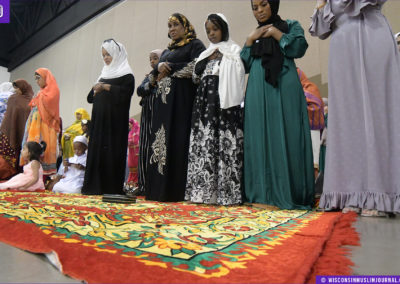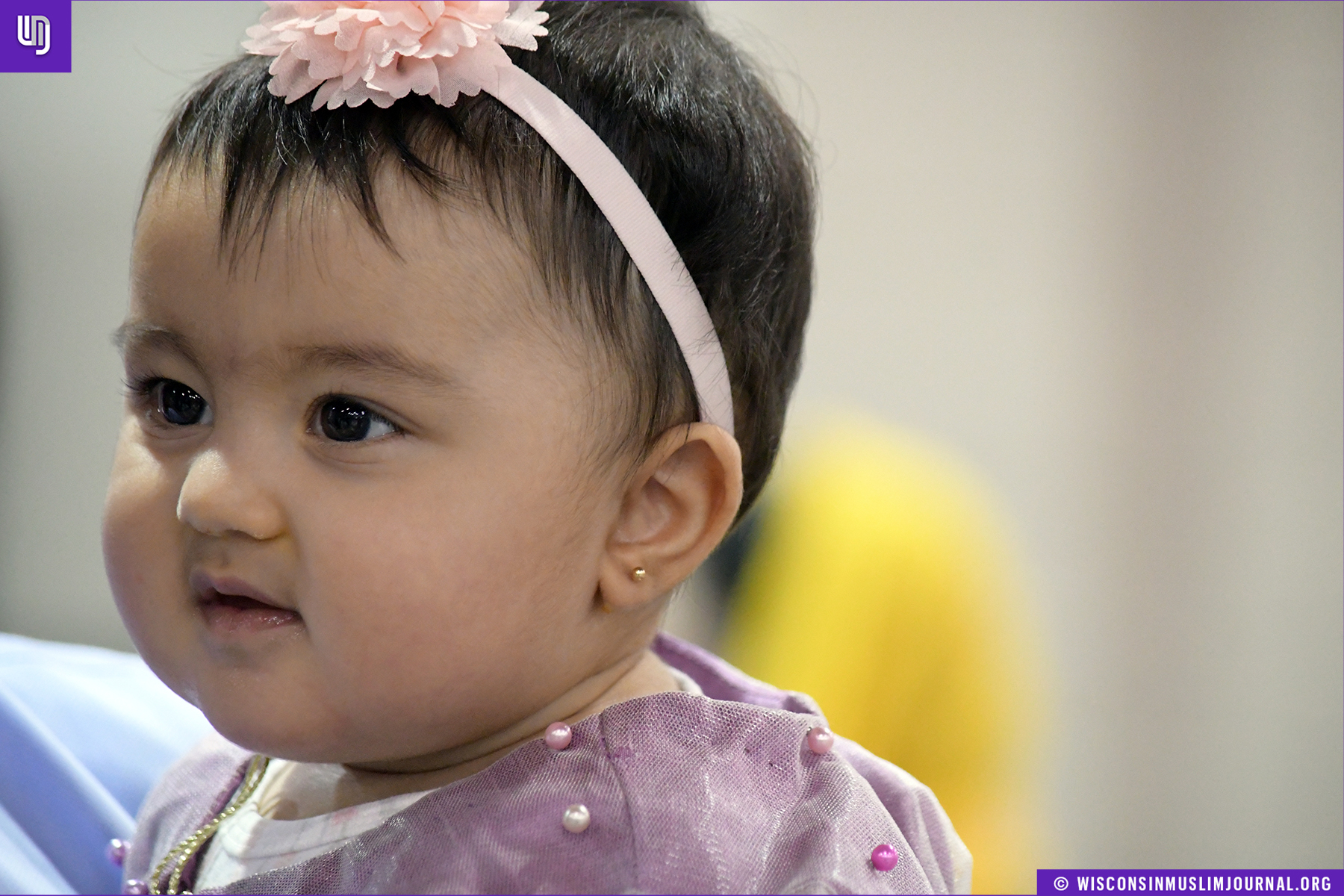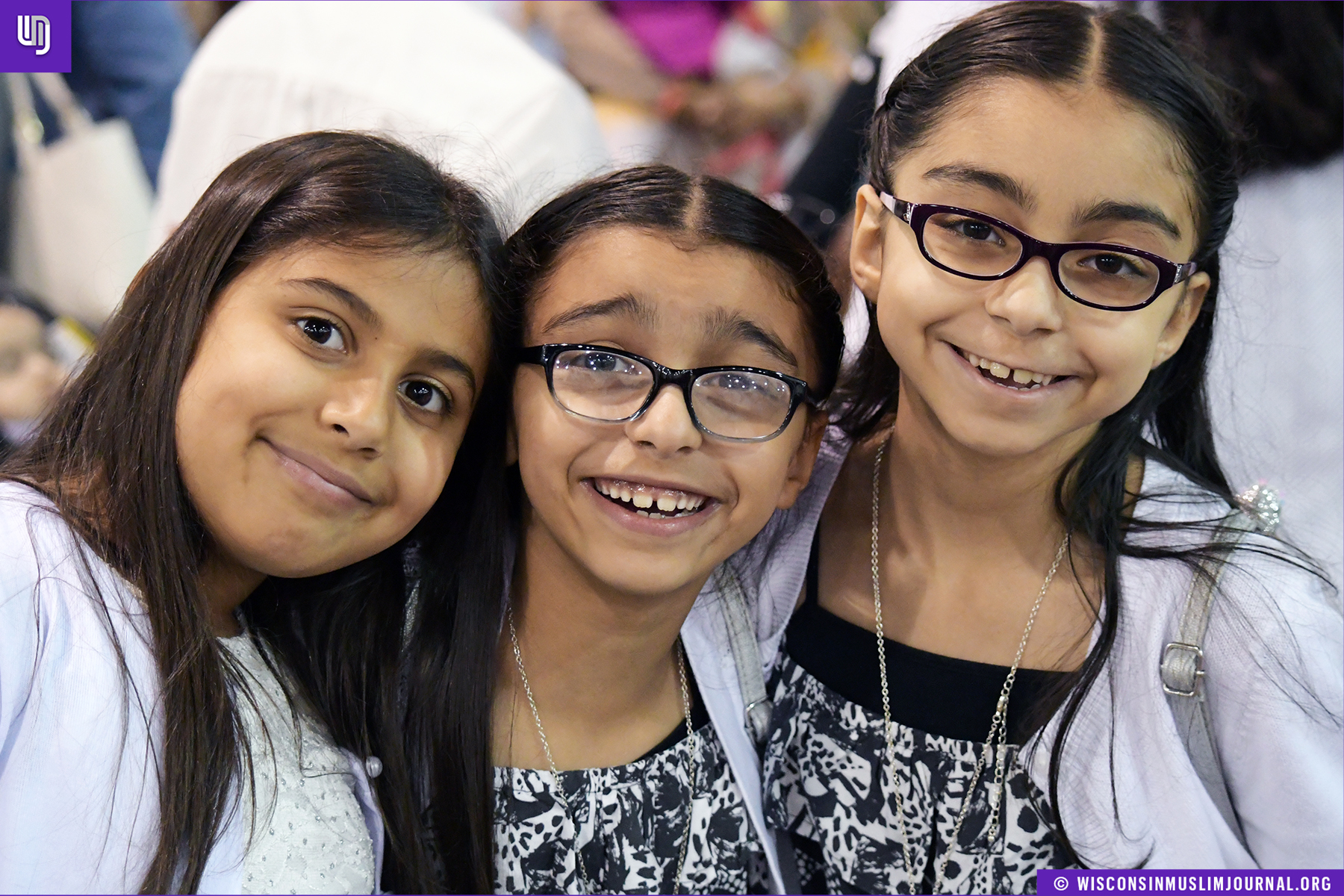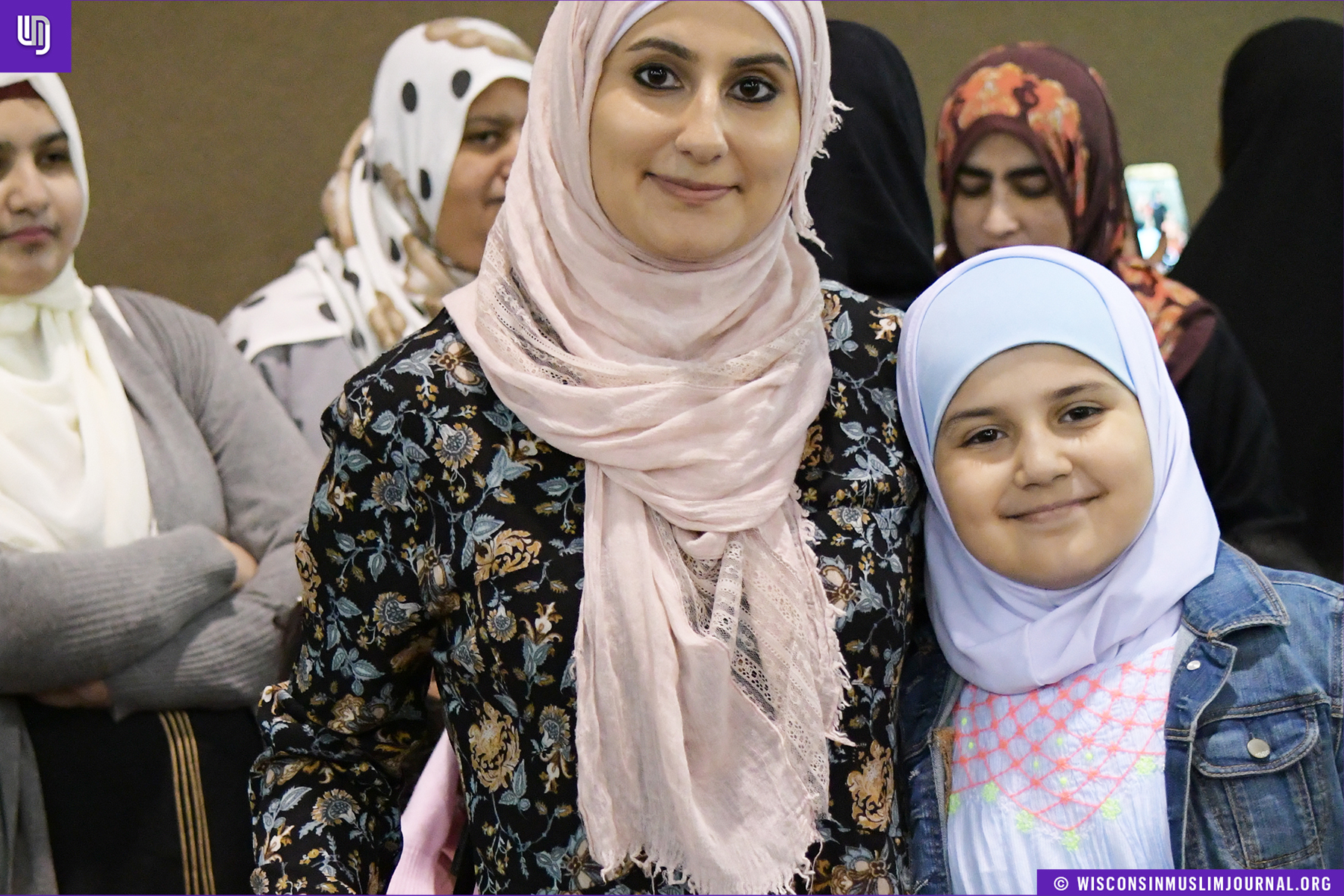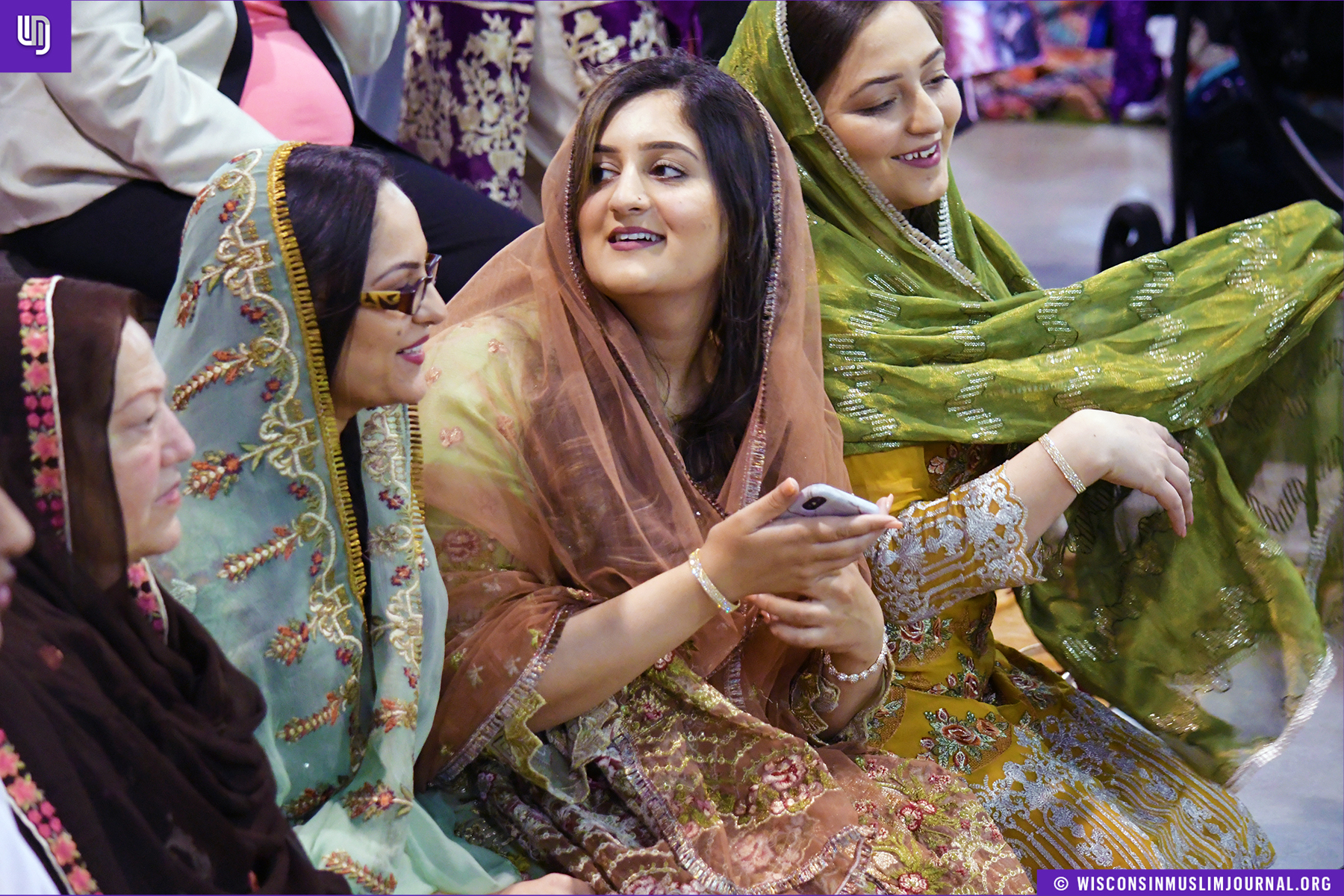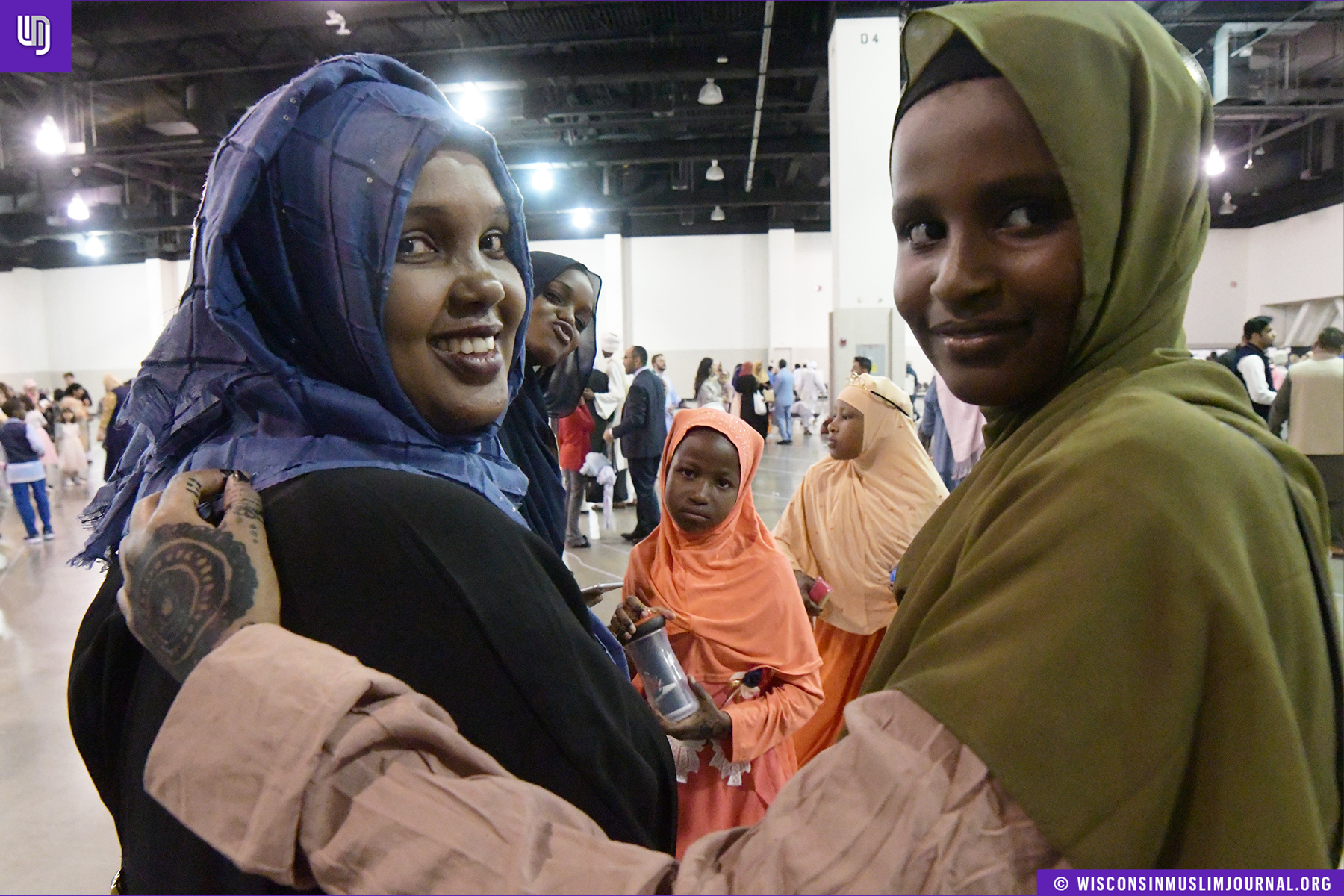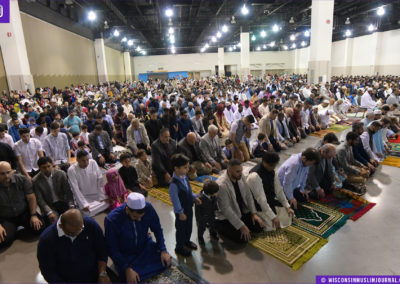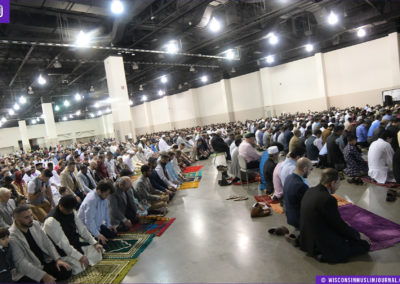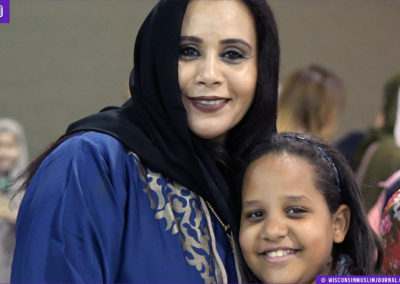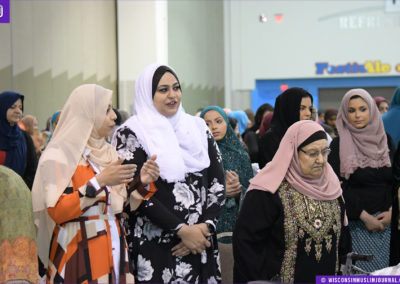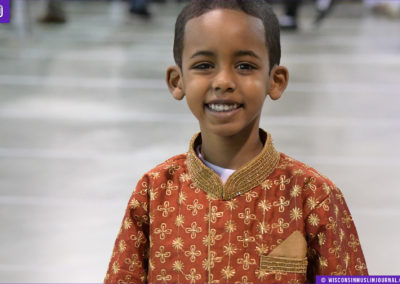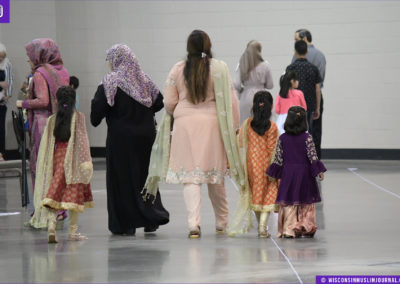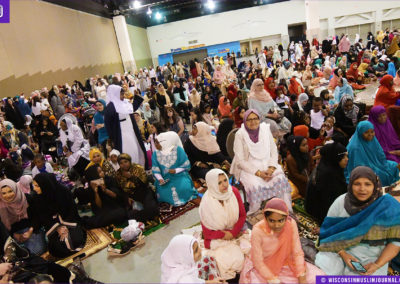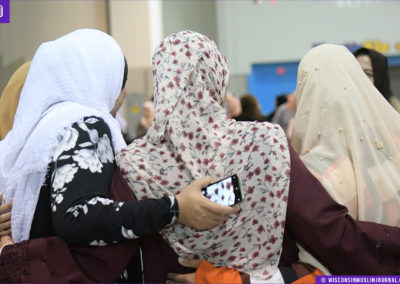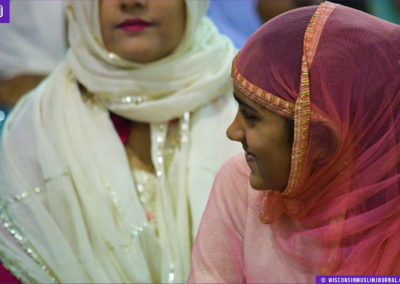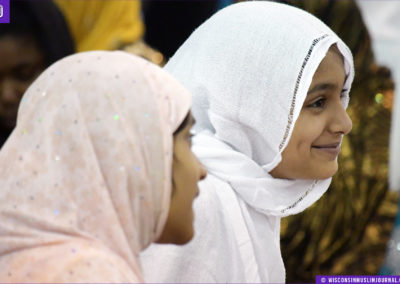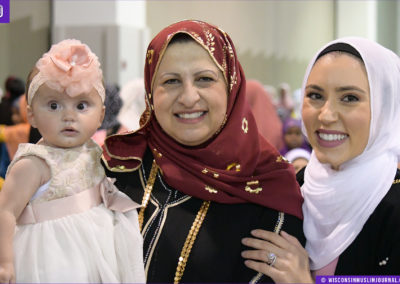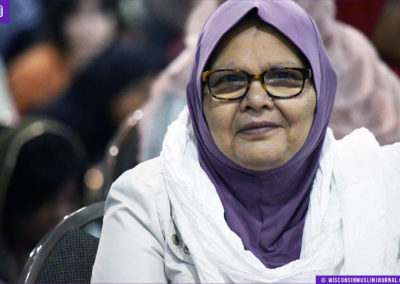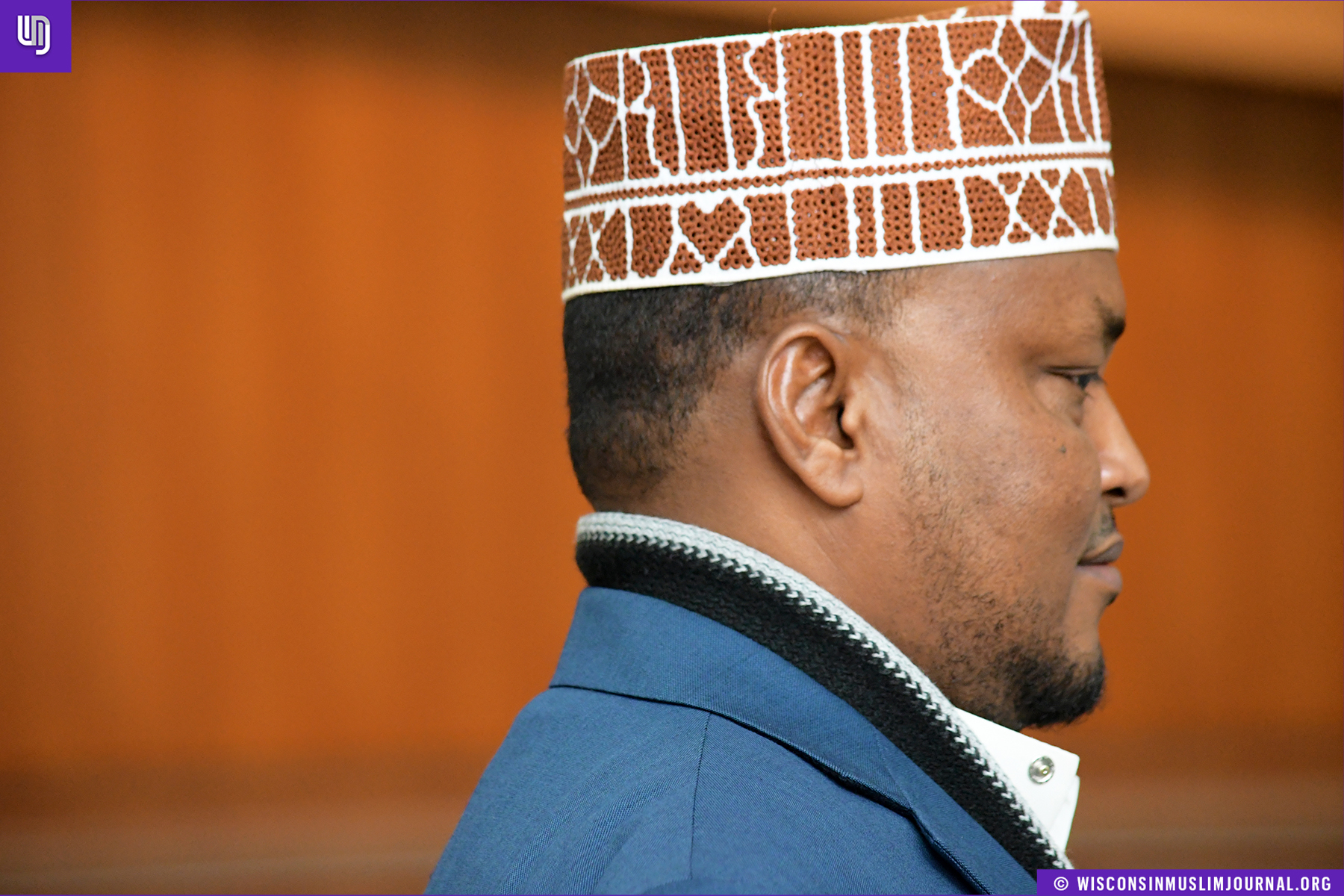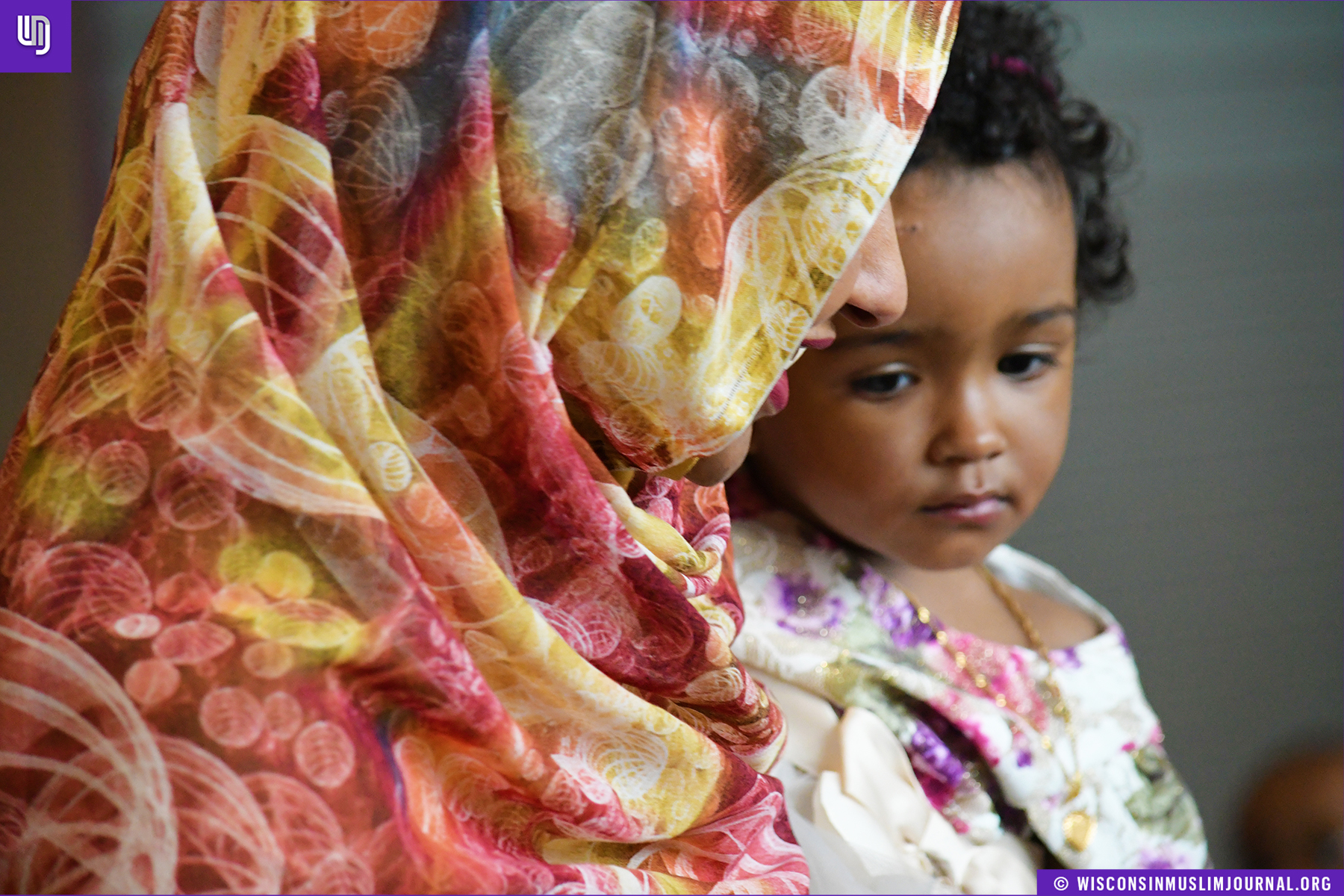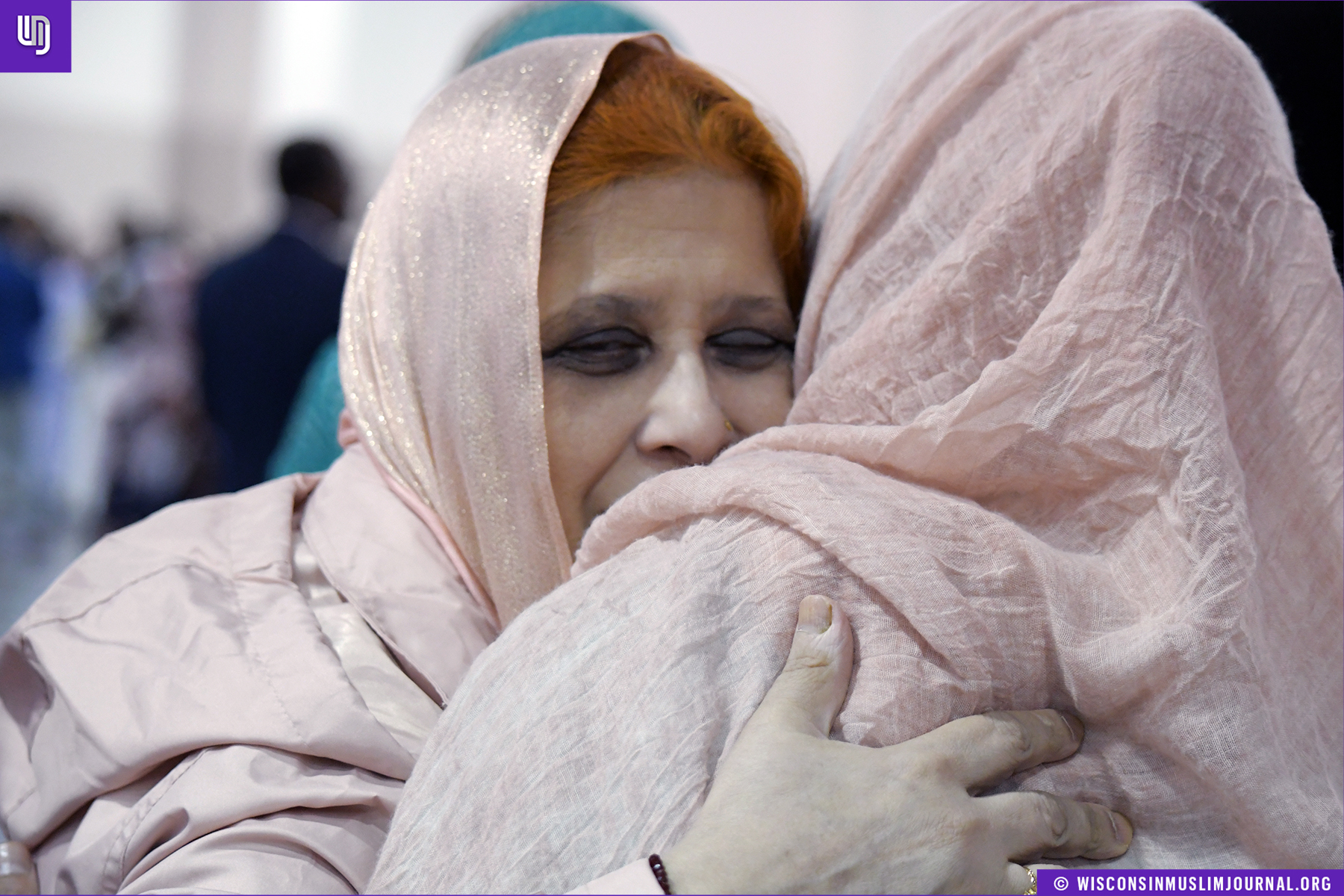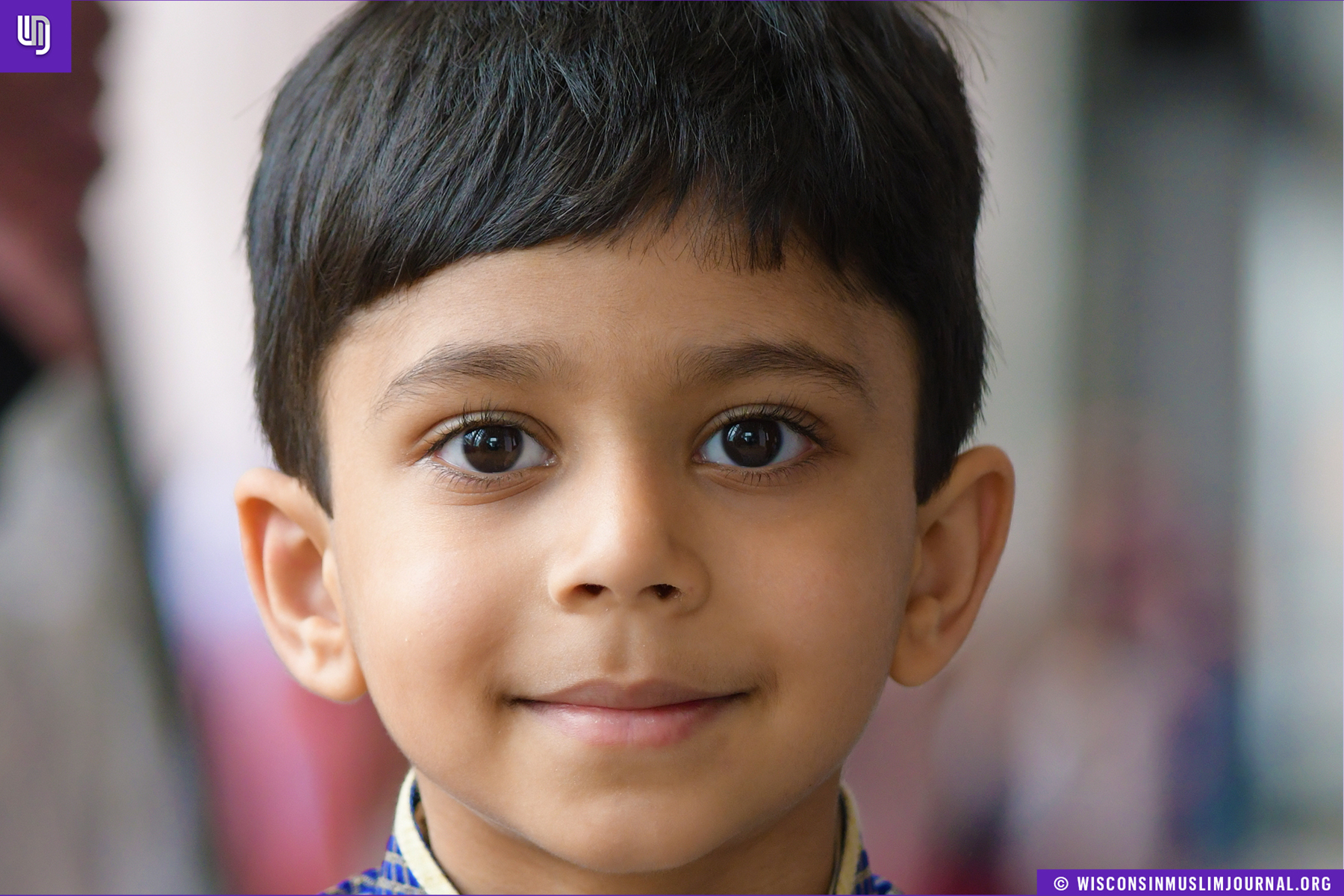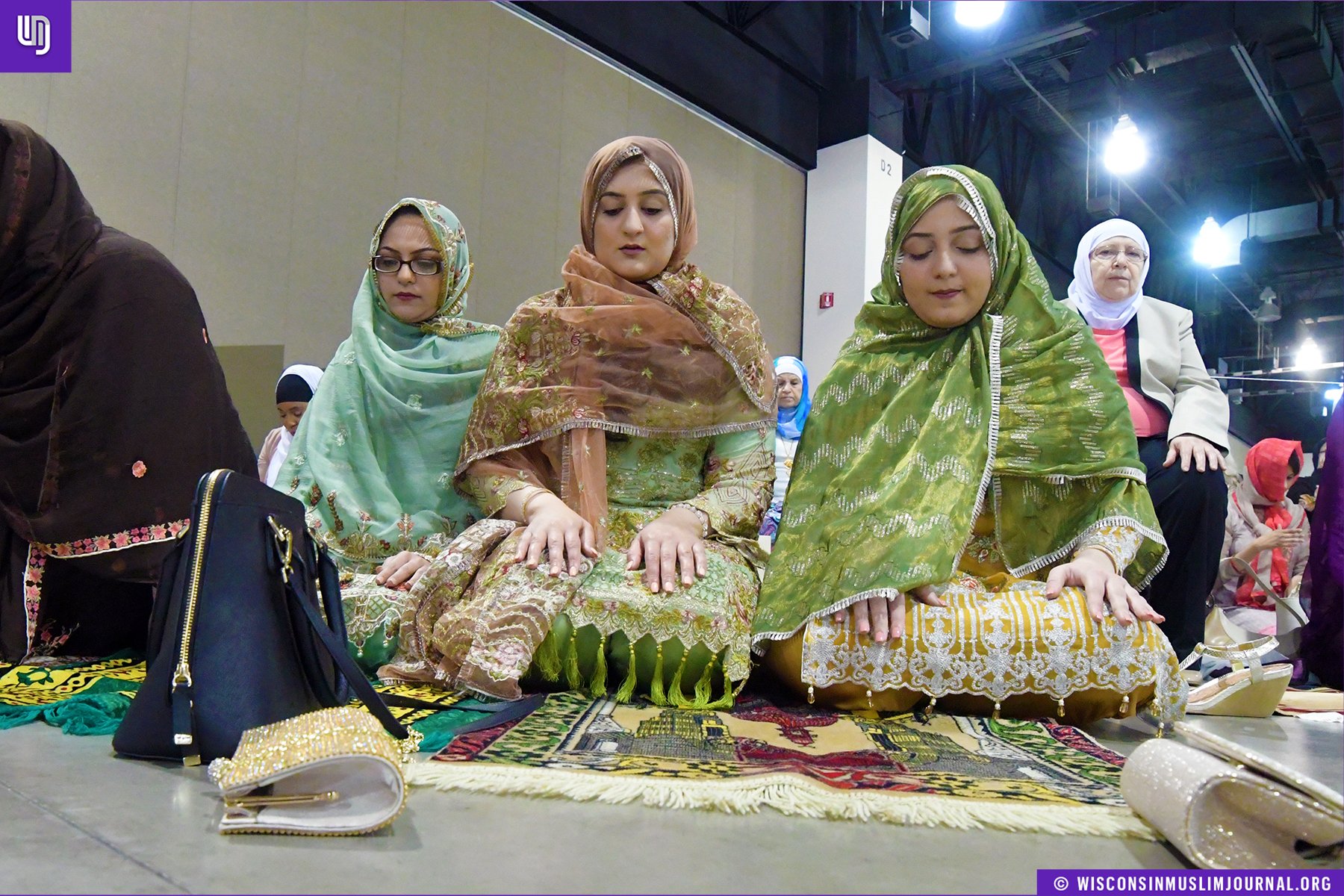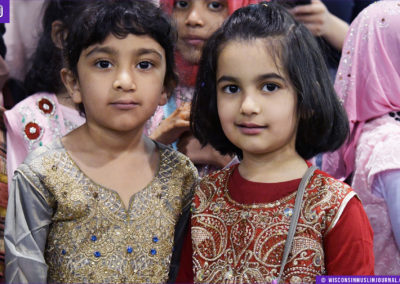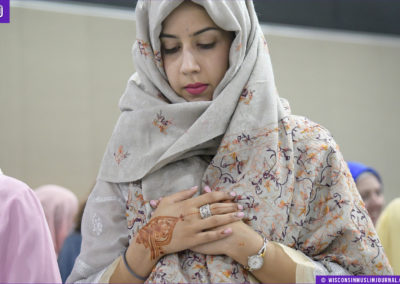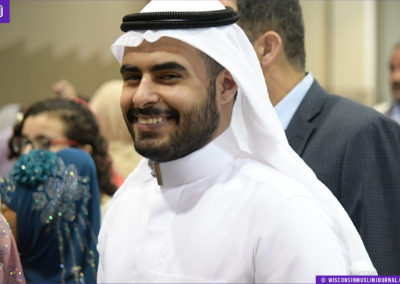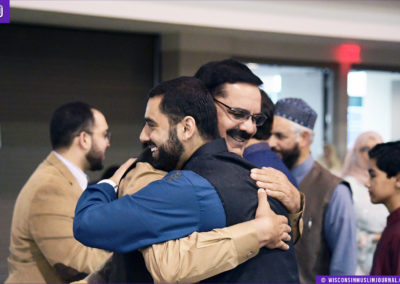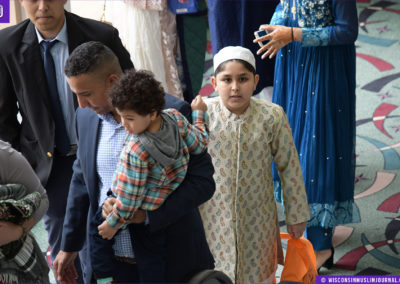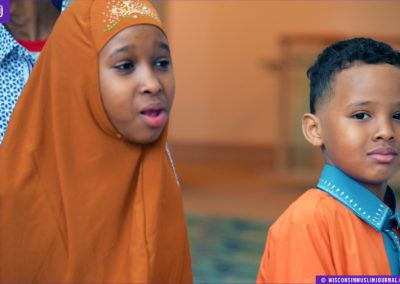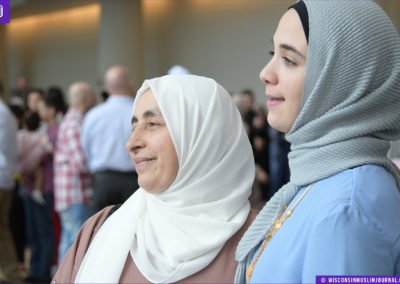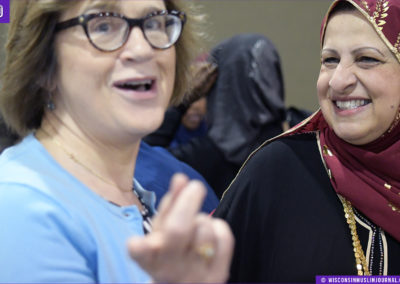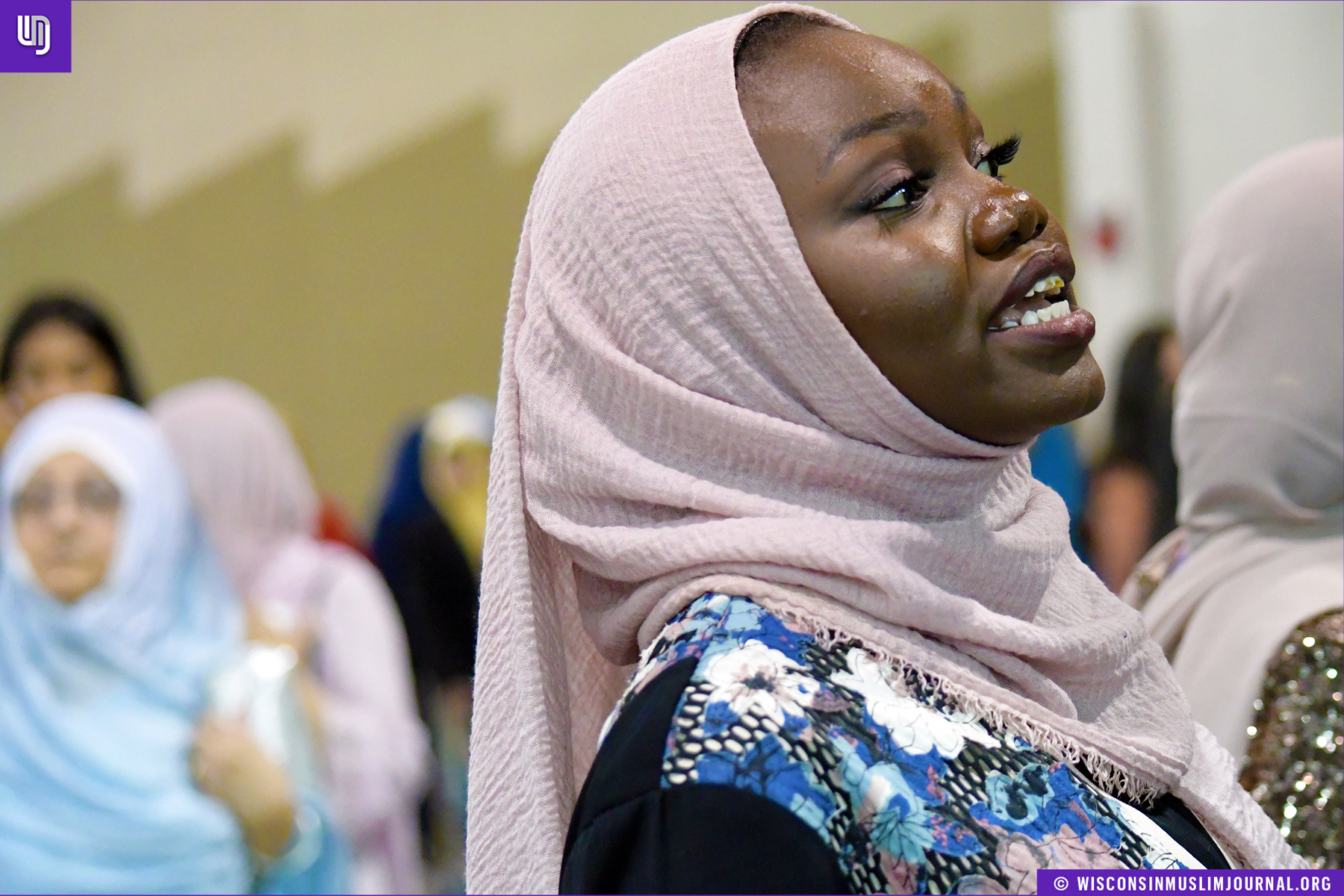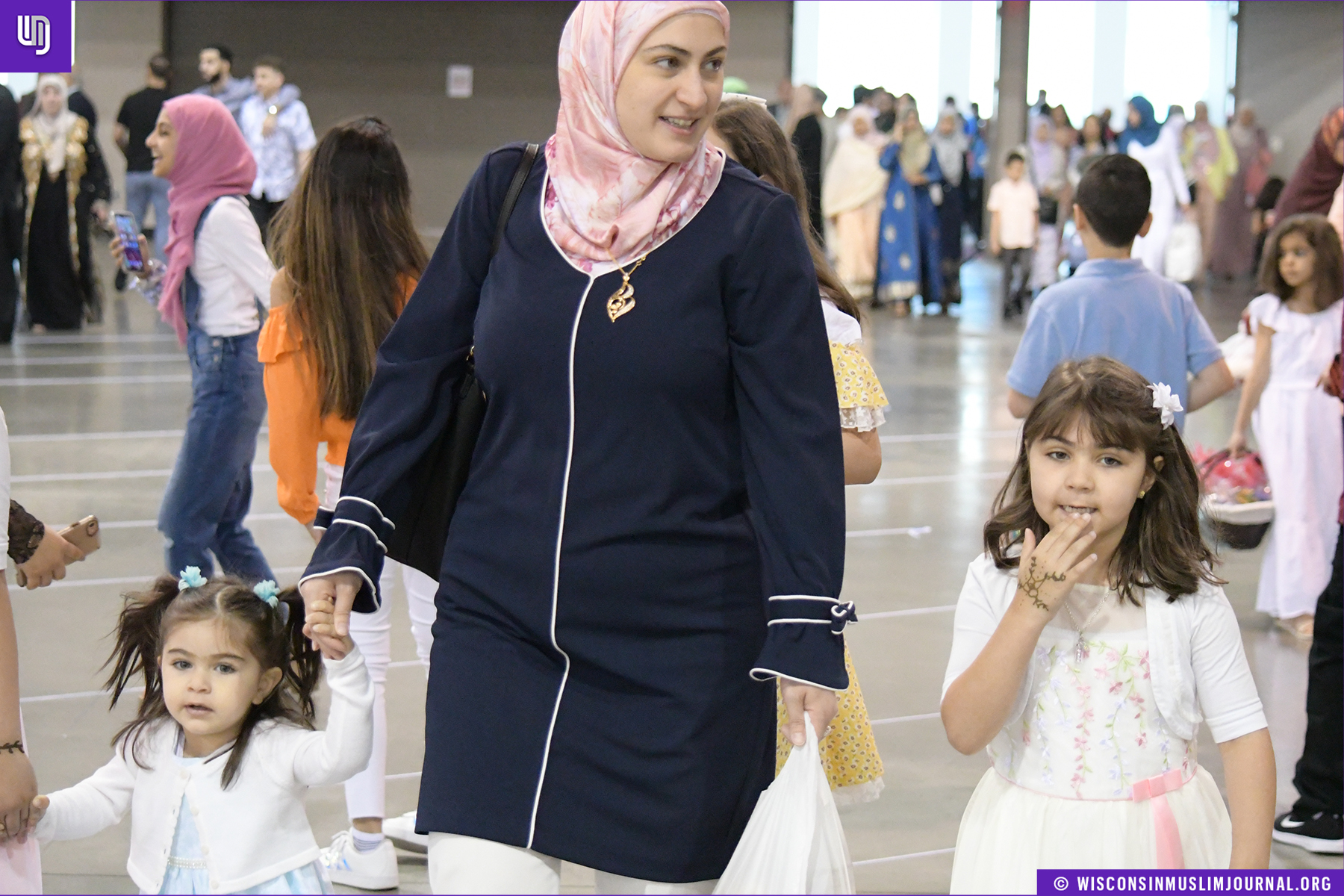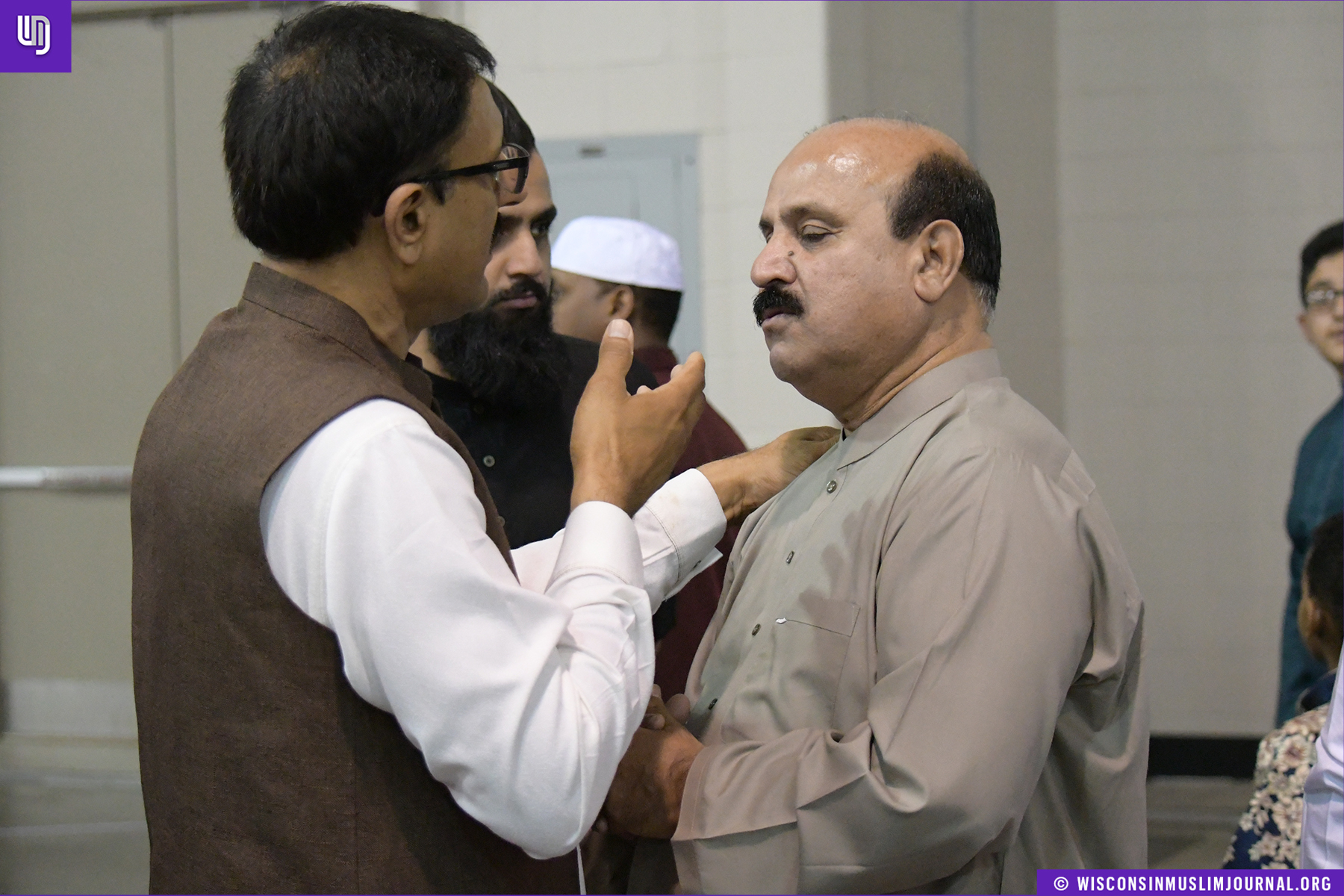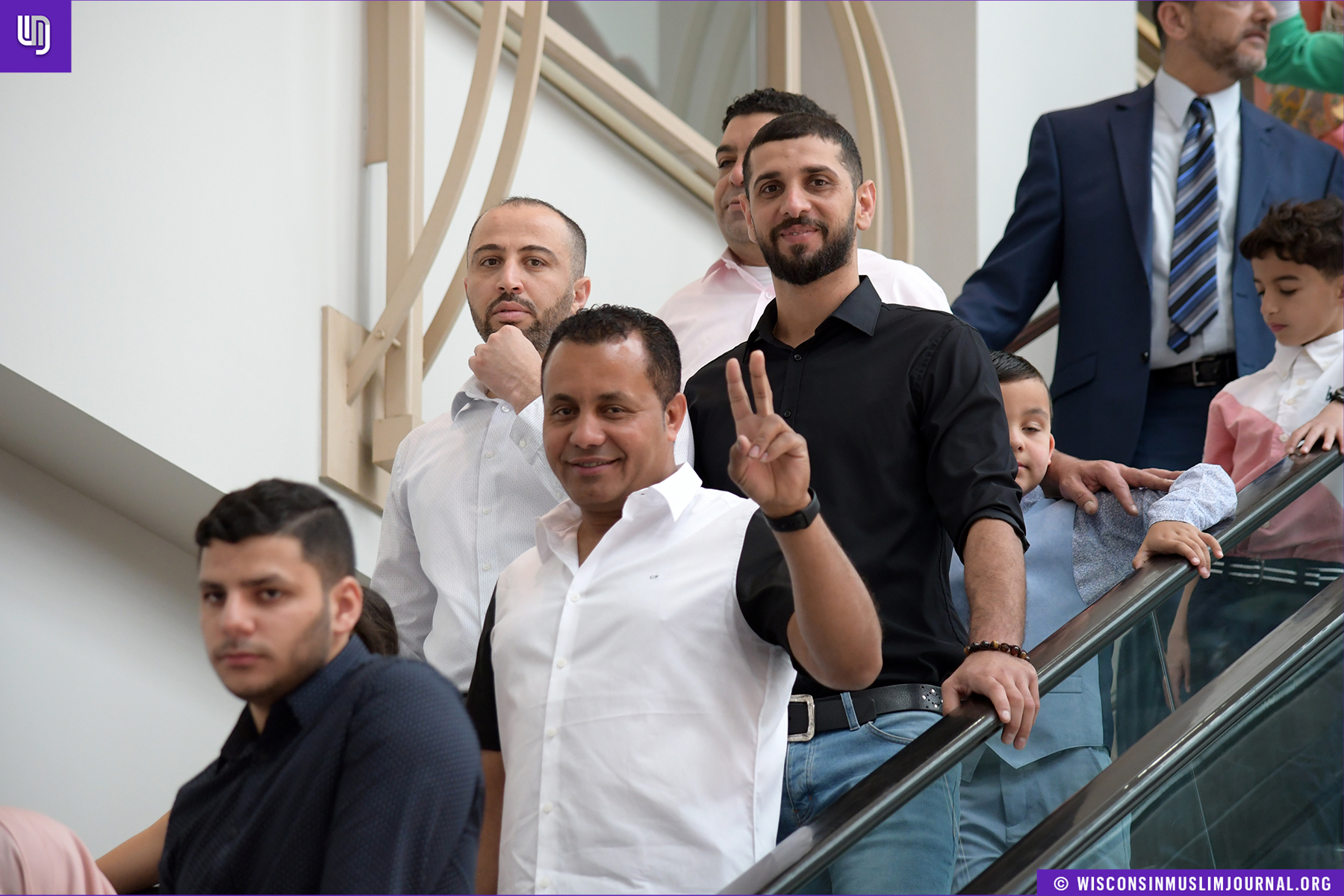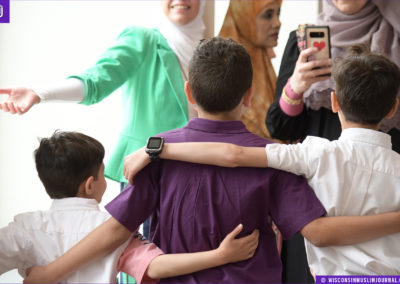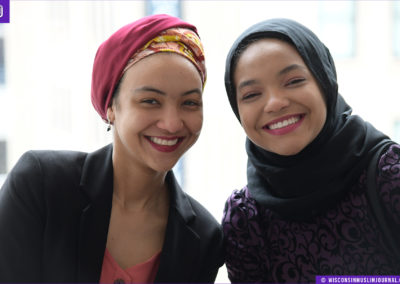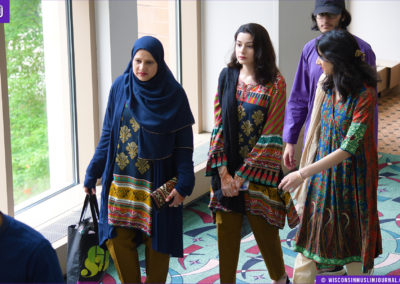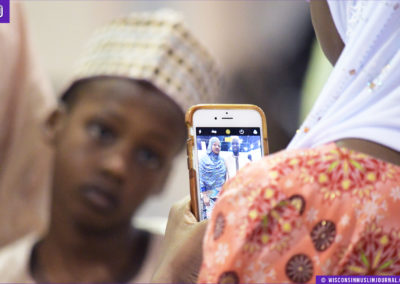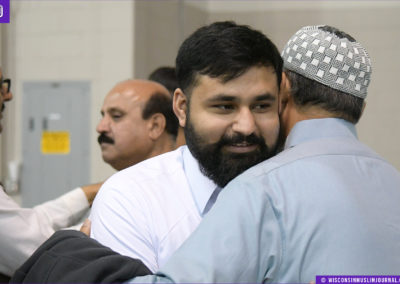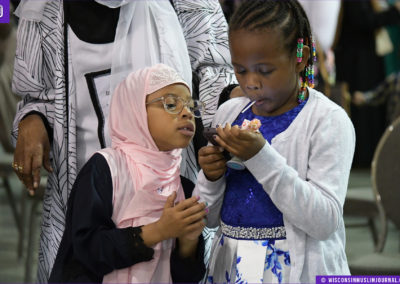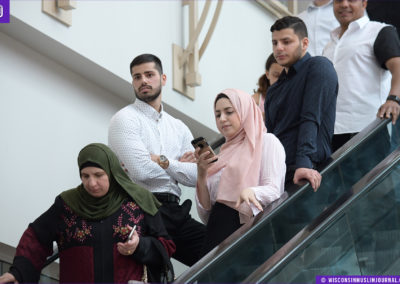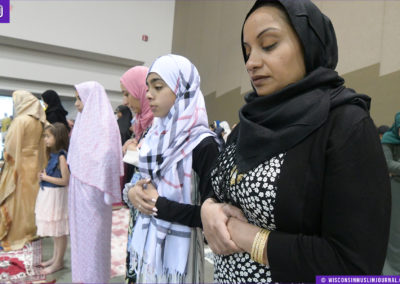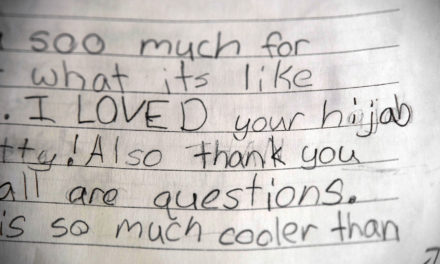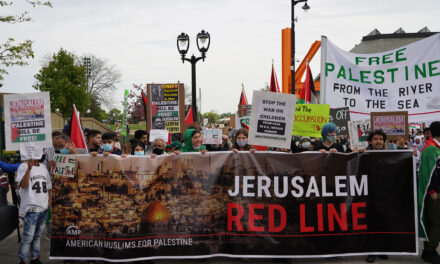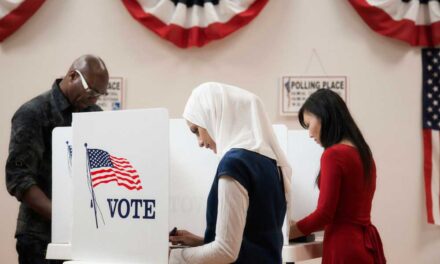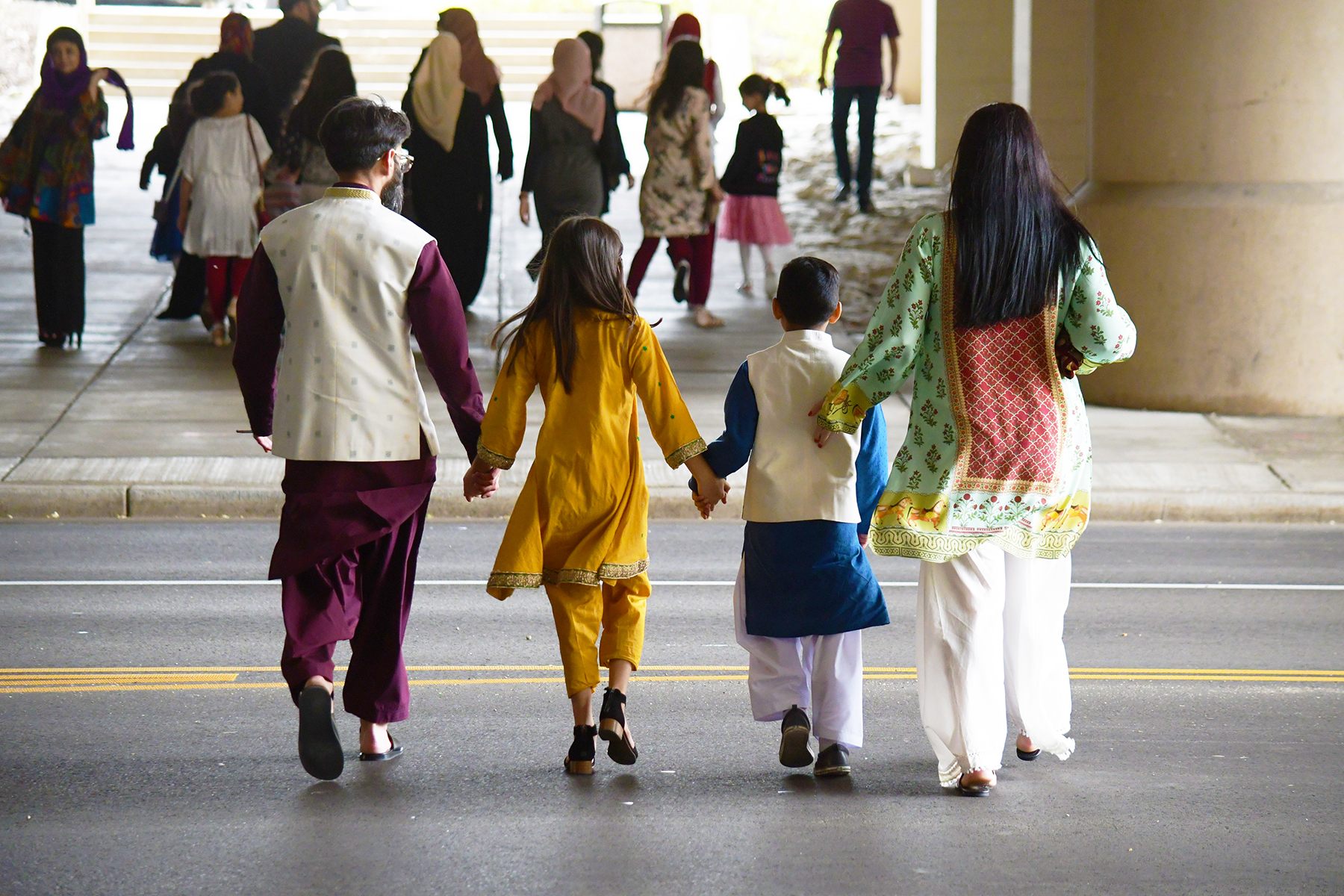
On the streets around Fourth and Wisconsin Avenue, it was evident that June 4 was a special day. A kind of pilgrimage was underway as Muslim families headed into the Wisconsin Center to celebrate Eid al-Fitr.
Inside the Center, Muslims exchanged excited greetings and hugs or simply looked on and smiled. At the entrance to Hall D, a man called, “Please pay your Zakatul Fitr before Eid prayers,” brandishing a bucket for donations.
The throng of women beautifully dressed in hijab or veils or bare-headed, wearing clothing in gorgeous prints and colors with bright, embroidered shawls, men wearing shalwar kameez or suits with open-collared shirts finally gathered inside Hall D for prayer, so many that the space assigned for women was not large enough to accommodate them all. Women and children set their prayer rugs on the floor along one wall. As one young woman said, “People are praying, like, wherever.”
As prayer began, a man carried a sign that read, “Please no talking during Khutbah (sermon),” but it was largely ignored, though prayer did proceed.
While thousands of Milwaukee-area Muslims chose to participate in early morning Eid prayers at Mosques close to their homes or work, more than 5000 gathered downtown on Tuesday for a community wide service to celebrate the completion of Ramadan and its rigorous, month-long fast. Attendees originated from Palestine, Pakistan, Somalia, Syria, Egypt, and Burkina Faso as well as the City of Milwaukee, demonstrating what Imam Dr. Zulfiqar Shah referred to in his sermon as the “ethnic diversity” as well as the unity of this large and vibrant community.
Laying out their rugs and getting ready for prayer, little girls put on veils with sleeve holes; one entire family dressed this way. A toddler in a denim dress with pink crocs clung to the hand of her hijab-clad mother, then got down on the floor in the prayer position, facing her mom. A father putting a turquoise clip in his daughter’s hair was not sure where it belonged. First he tried putting it above her bangs, but that was not quite right, so settled for above the ponytail.
Little boys wore shalwar kameez that matched their fathers’. Sometimes entire families were dressed in the same color.
“Today is a big day for us as Muslims. We have been fasting for 29 days to show God how much we love Him,” said Salif from Cudahy, who came here 5 years ago from Burkina Faso. “I feel like I’m in a big family.”
Two stylish young women, Ameerah, a recent Harvard graduate on her way to law school in the fall, and Yasmeen, a student at Emory University, are longtime friends from Brookfield. “You get to see everyone. It’s very exciting! Nothing changes!” Yasmeen declared.
“We are so happy. We feel so comfortable. This is the day we gather and see each other. Everybody gets off the job. This is the day of peace.” During Ramadan, “we sacrifice, pray, ask for forgiveness.” Now, “People feel life again!” Abdirizak Ahmad reported.
An African-American woman tells me being here is, “very enlightening, very peaceful.” Farasha worships at Masjid Ar-Rahman on Teutonia Ave. in Milwaukee.
“Beautiful, exciting!” declared Fawaad, who attended with his wife Lakisha and their daughter, Avani. “And I saw my Muslim friend!” said Avani, a student at Clara Mohammed, a Pk-12 private Islamic school.
“I’m happy. You’re on a spiritual high, coming off Ramadan,” said Fouad, a Palestinian-American wearing a vest decorated with white embroidery and small mirrors.
One little boy wears a blue cat mask and a blue cape. “I’m a superhero,” he said. “He’s Cat Boy,” his father said.
In his sermon, Imam Shah reminded Muslims that spiritual guidance is a special gift of God. During Ramadan, Muslims fast, pray, ask forgiveness, give to charity. “They must be grateful to God if he has given them the opportunity to pray and worship him,” the Imam said.
“I was reminding them of the special gifts that God has given to the Muslim community of America. They are highly educated and financially stable, ethnically diverse and professionally diverse. The crime rate in the Milwaukee Muslim community is minimal. We are very well integrated into the American fabric and very engaged, civically and politically,” the Imam said.
However, the Imam reminded worshippers that, “We need to stand up for these special gifts and do more civically and politically.” He pointed out that the challenges presented by secularism, including atheism and agnosticism, are “hurting our community because we do not have the traditional support system” that exists in majority-Muslim countries. “People are using their freedom and losing their identity and their faith tradition,” he said. In response, said the Imam, “We need to modernize our approach.”
After the public gathering, Dr. Mohamed Ibrahim, a professor at Marquette’s School of Dentistry, described what would take place during the rest of the day, “Now we’re going to get together with friends and family, eat, take the kids to the park or the movies. Tonight, we will have an open house for colleagues and friends,” where “the kids get together and play.”
A couple of women tell me I should ask their children, ages 7 and 8, how they feel about Eid al-Fitr. The children are shy and will say only, “Happy.” Yara, one of the mothers, explains that for children, the day means, “gifts and toys, candy, new outfits, new shoes!
“We’ve been breaking our fast, thanking God that he has given us the opportunity to get closer to him. Our batteries are getting recharged for the whole year. God is great!” Yara says. “He helped us to be more spiritual, to be able to fast. We know that our prayers are going to heard, and we are grateful because heaven’s gates are opened this month.”
A stream of men walk up one by one to hug and kiss the Imam. Girlfriends in multi-colored hijab pose for pictures with their arms around each other. Smaller groups take selfies. Rinad from Oak Creek, who came to the area from the Palestinian town of Jaffa, explains that, in the Middle East, women traditionally stay home for Eid, making treats and welcoming visitors, while the men go to pray. However, in Milwaukee, “We feel like it will never be Eid without being here.”
These pictures share highlights from the morning’s prayer event and show the diversity, warmth, love, and deep connections between the generations of participants.
© PHOTO NOTE: All the editorial images published here have been posted to the Wisconsin Muslim Journal’s Facebook Page. That collection of photos contains the WMJ watermark for attribution, and may be used for private social media sharing.
© Photo
Lila Aryan Photography for the Wisconsin Muslim Journal
